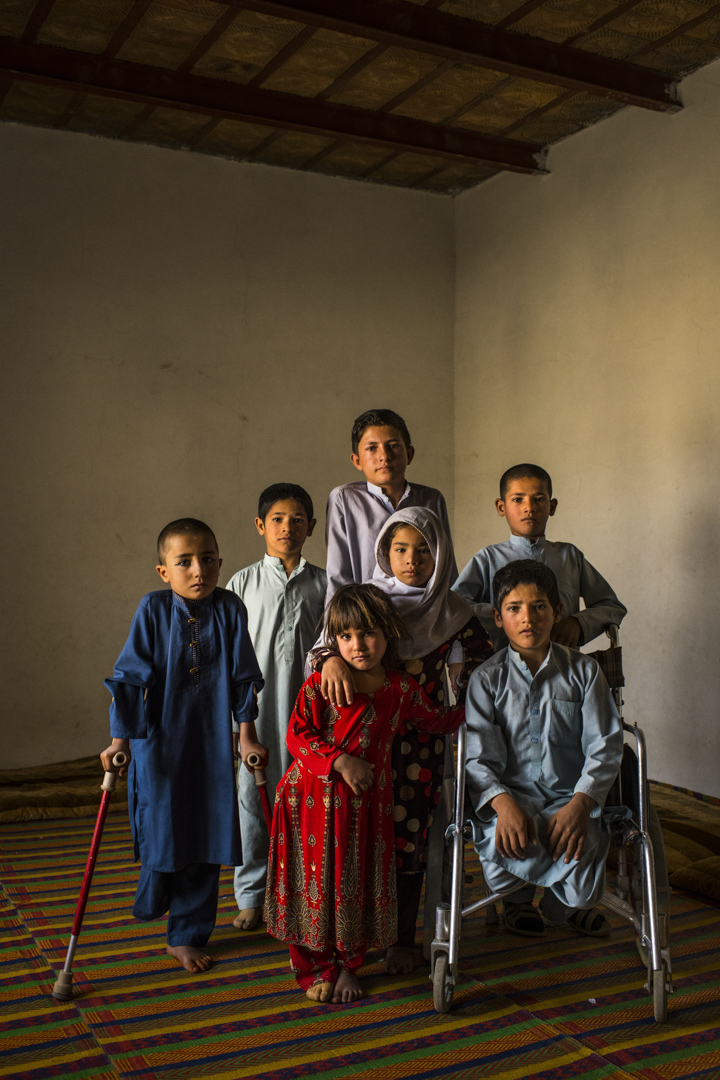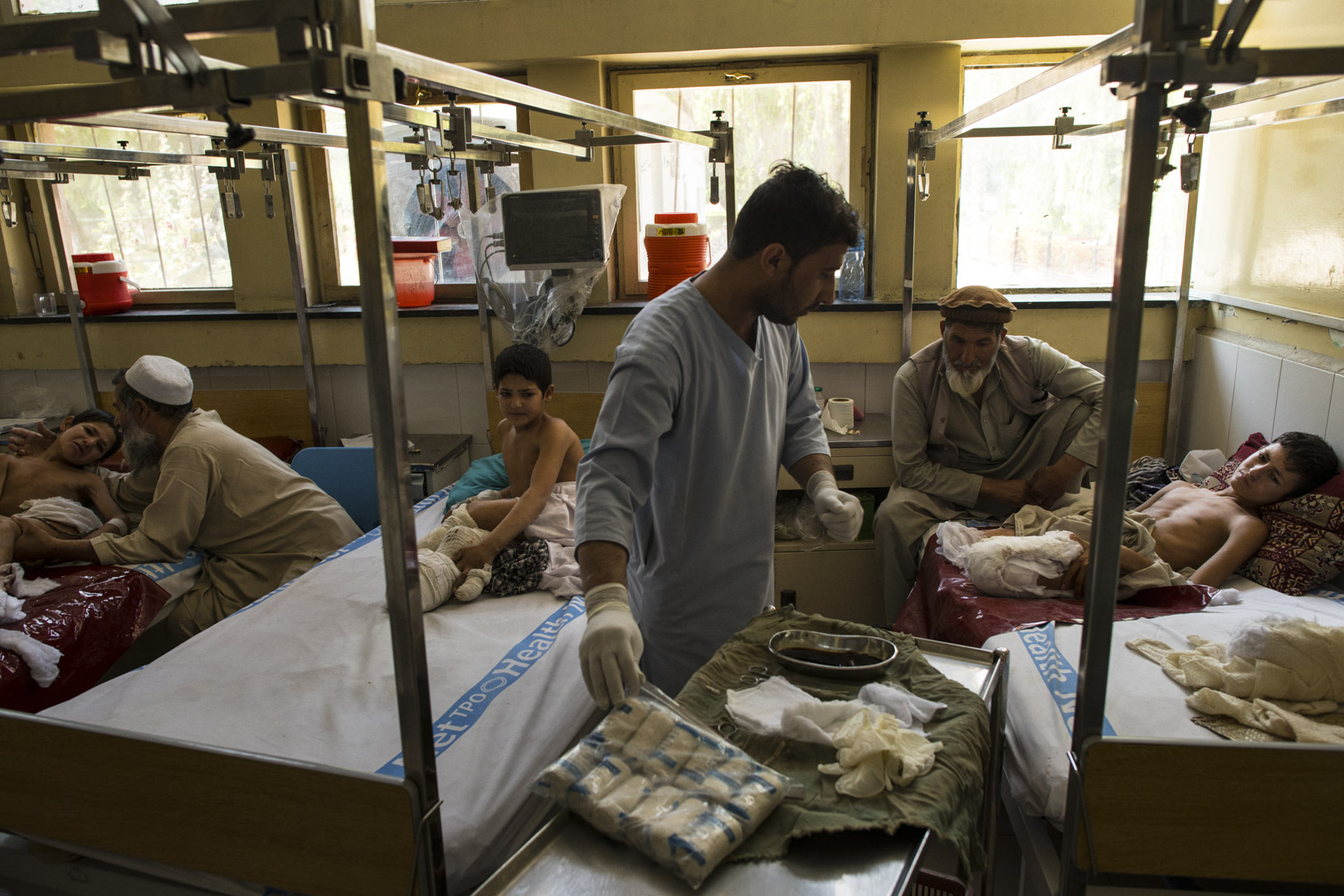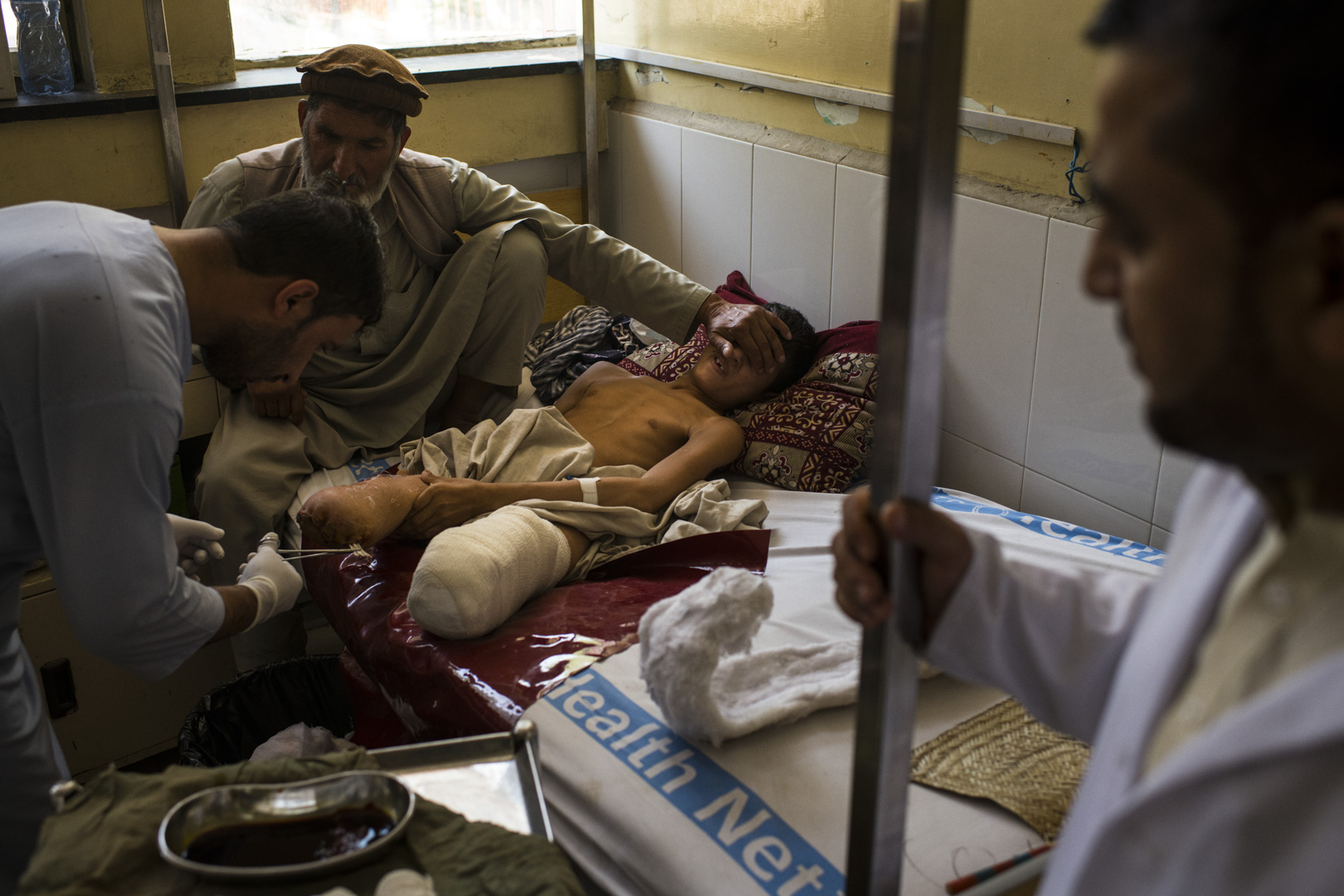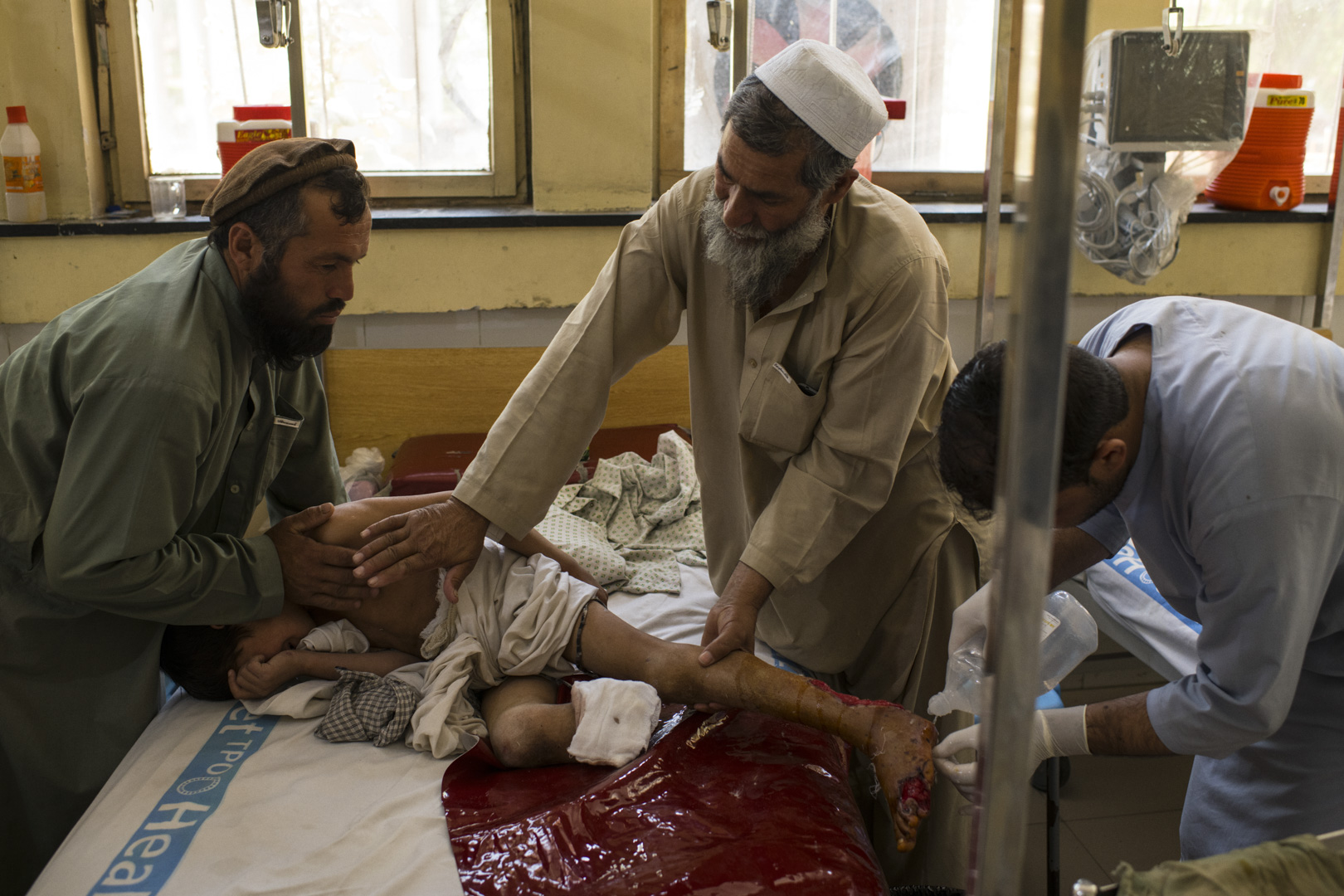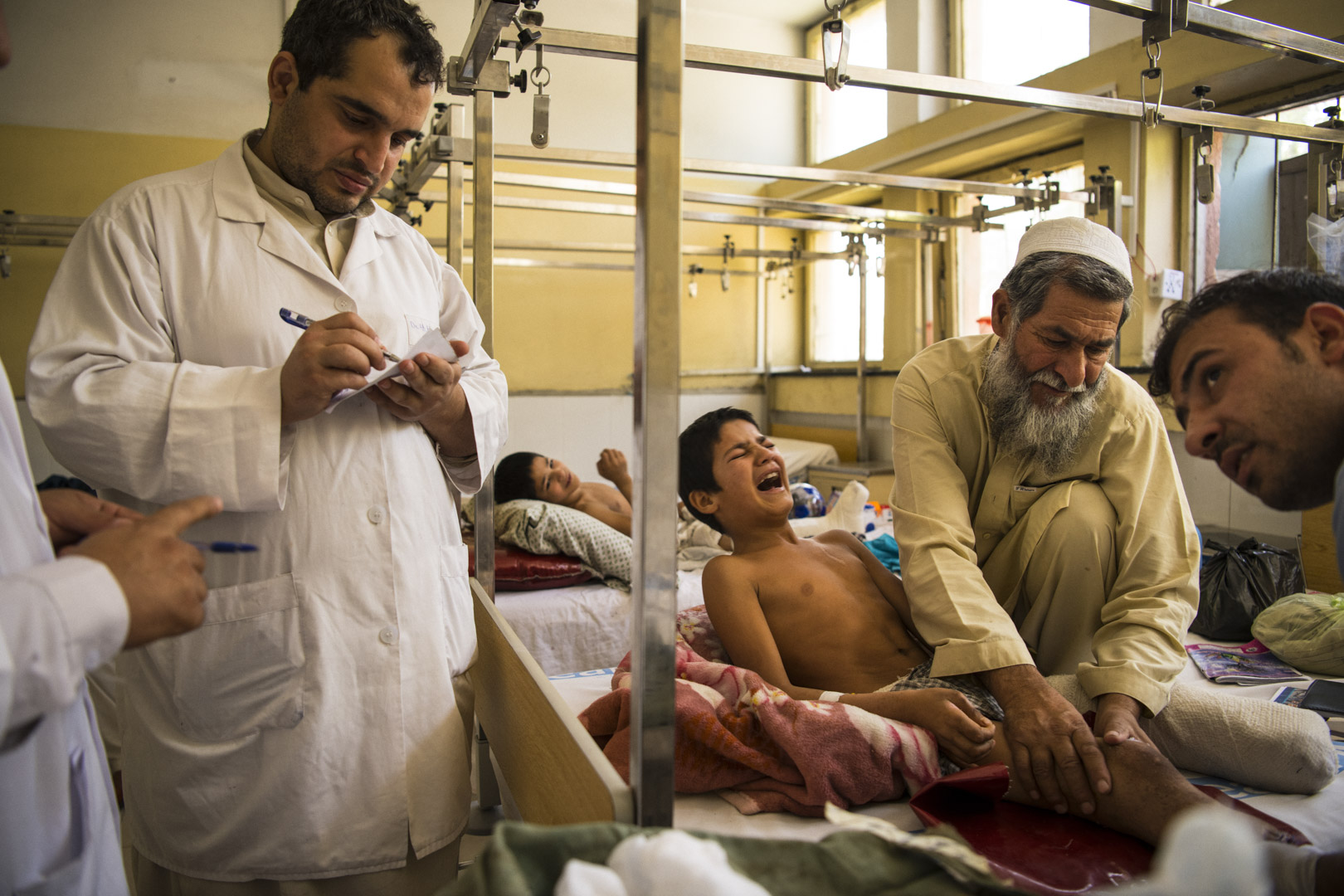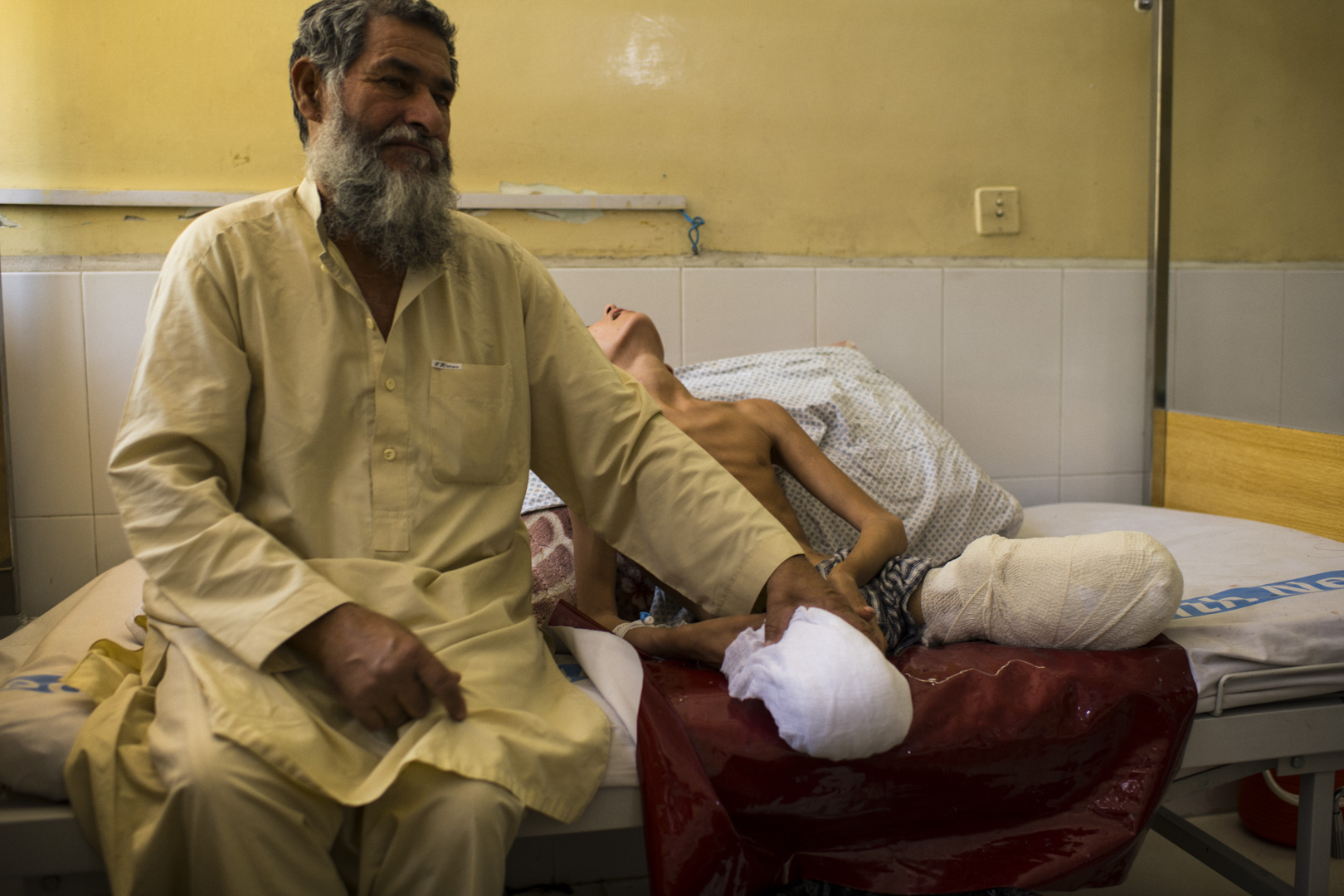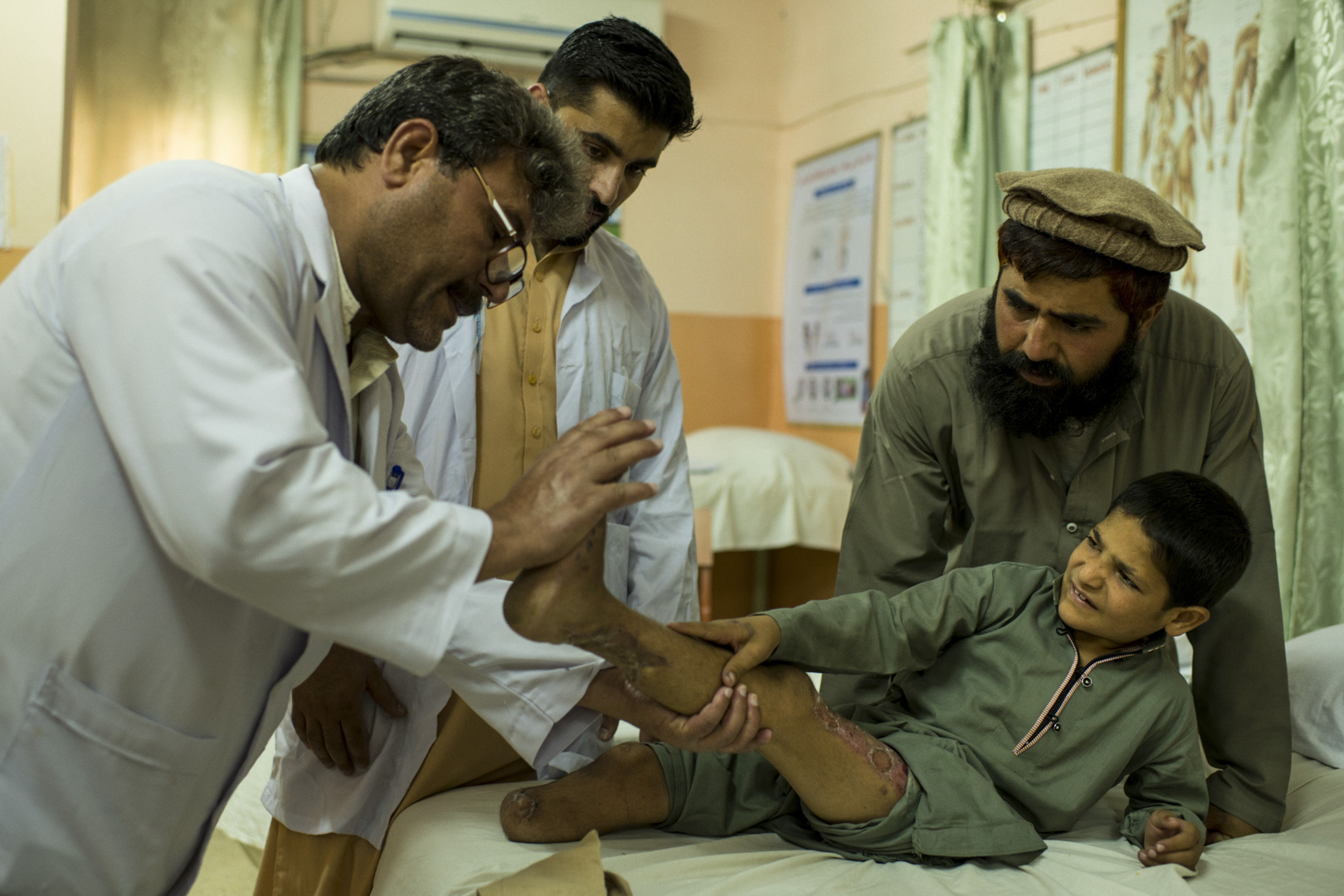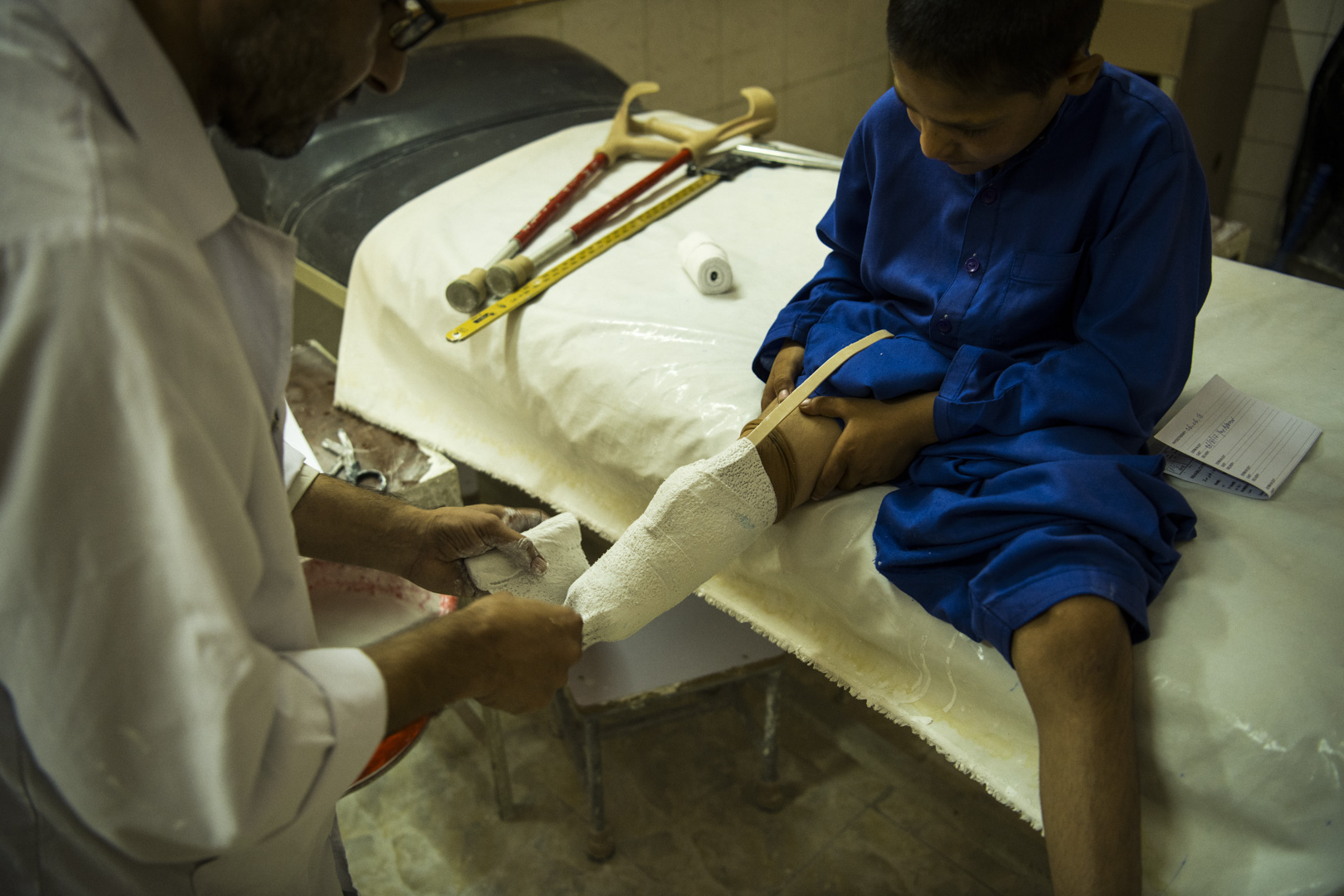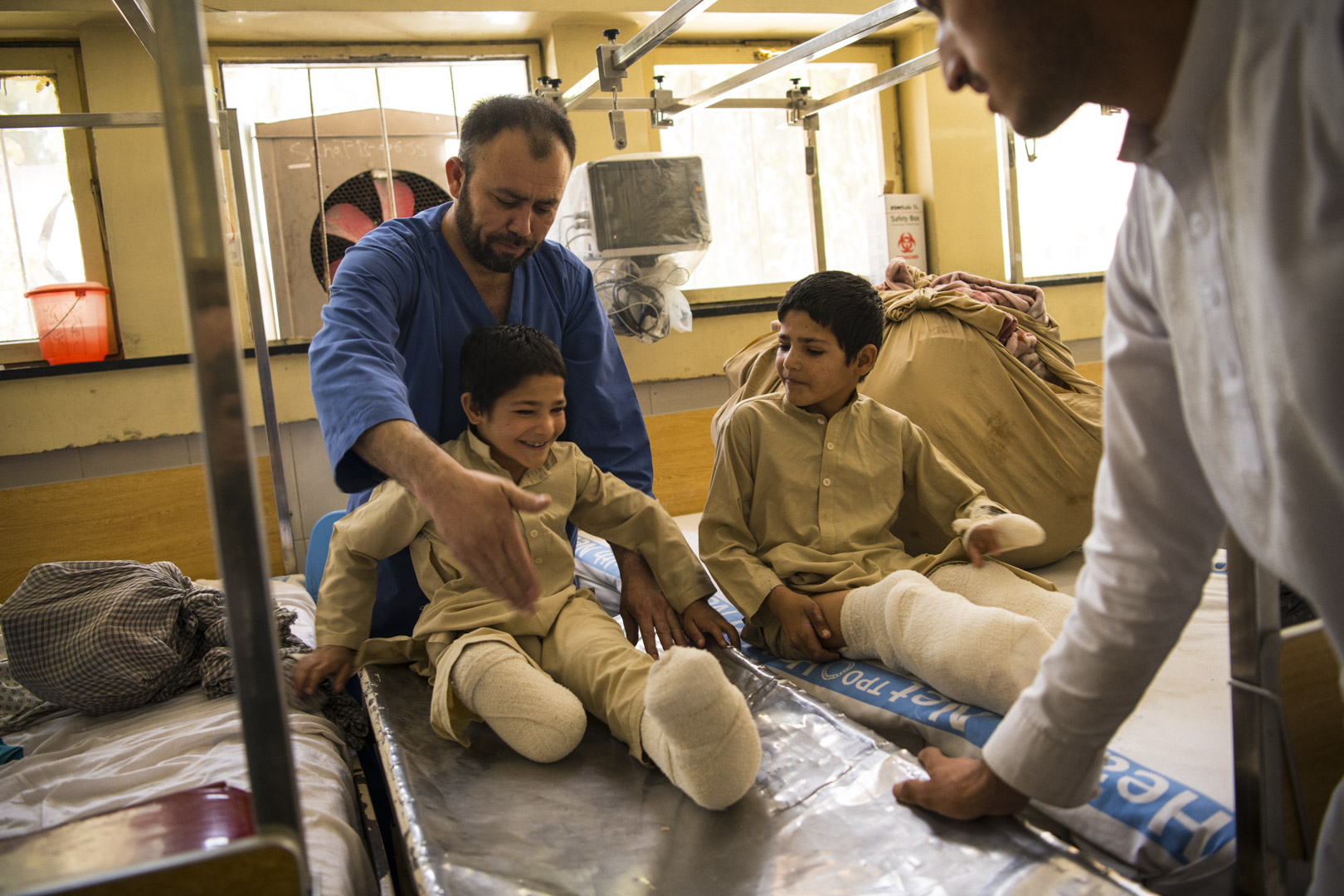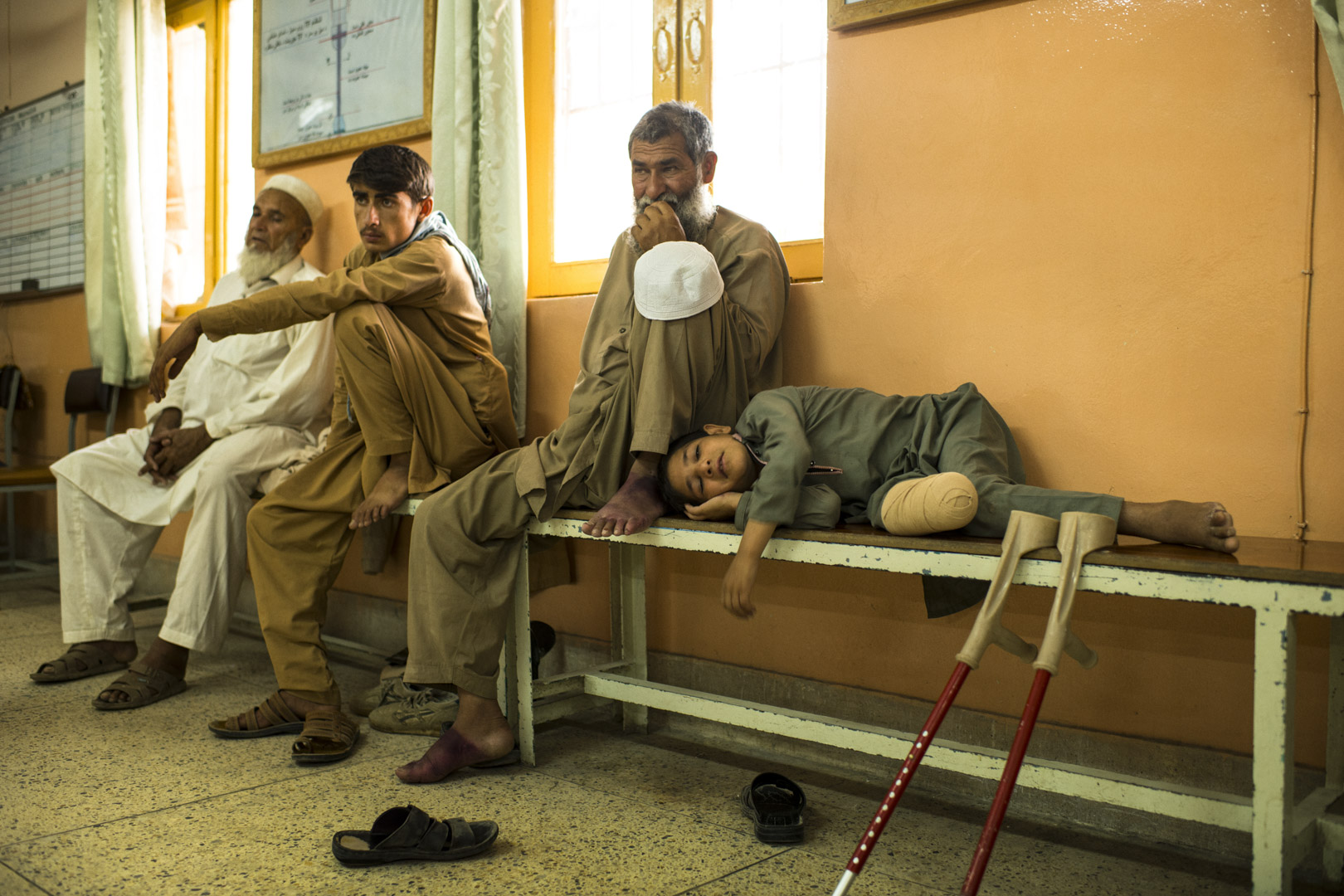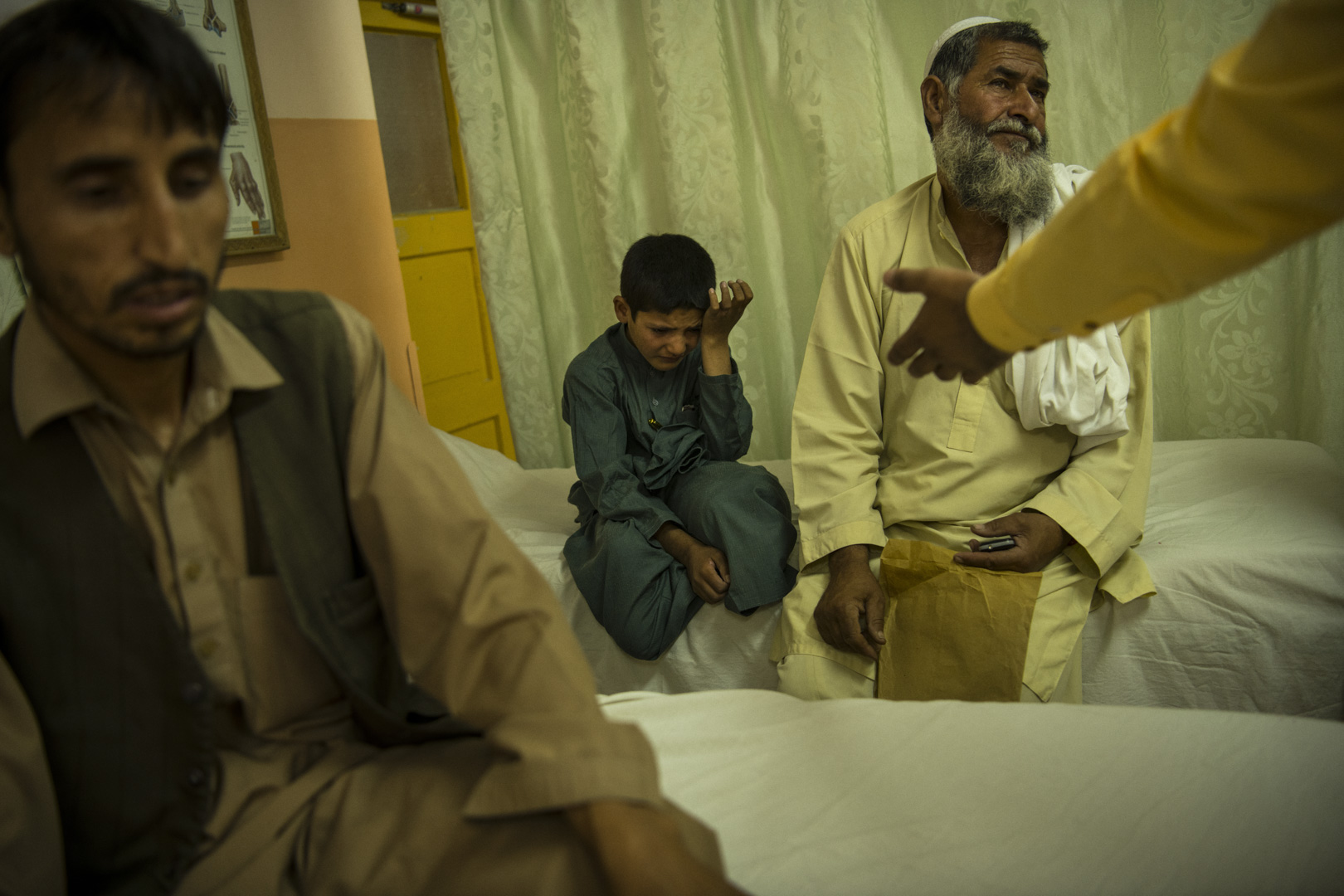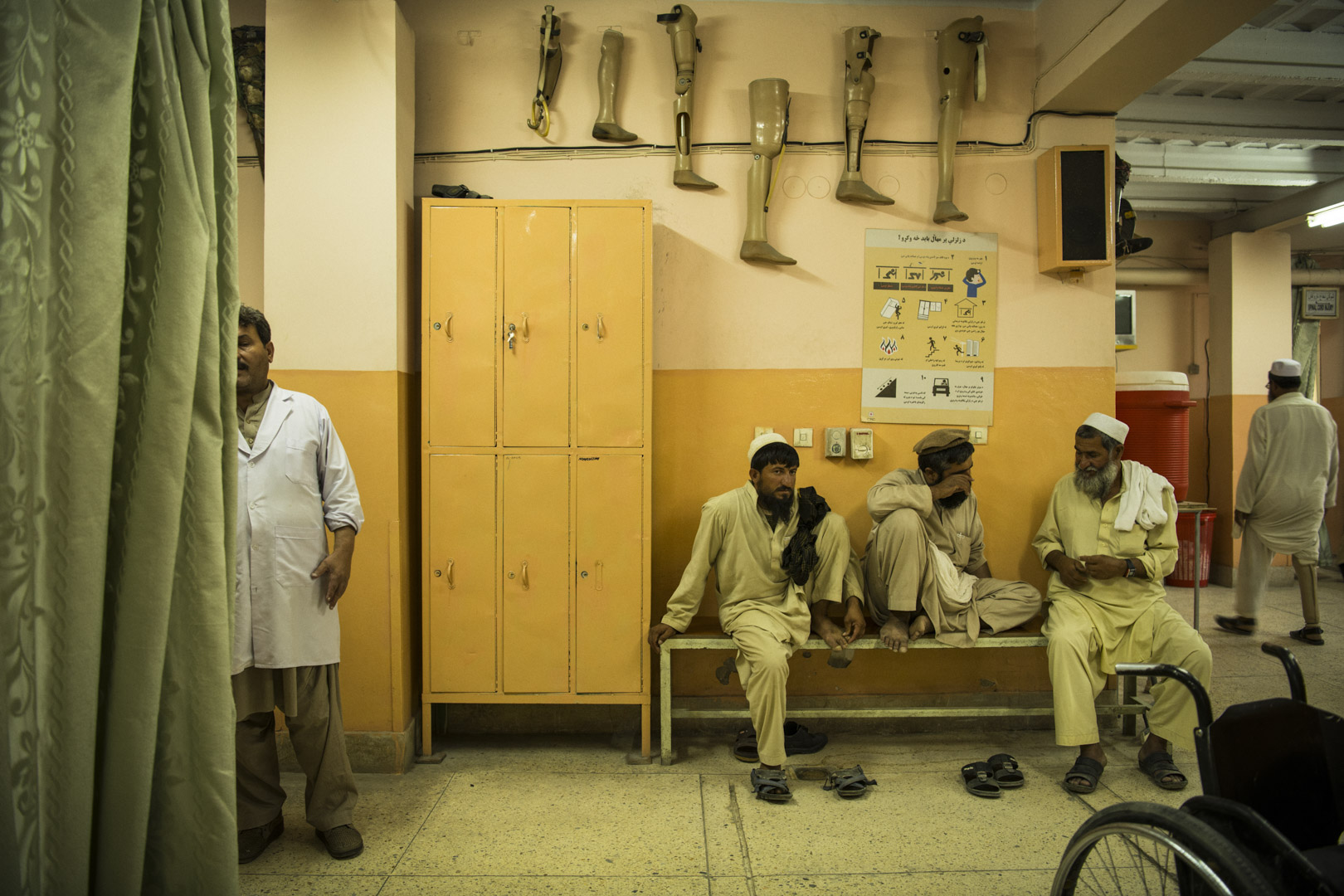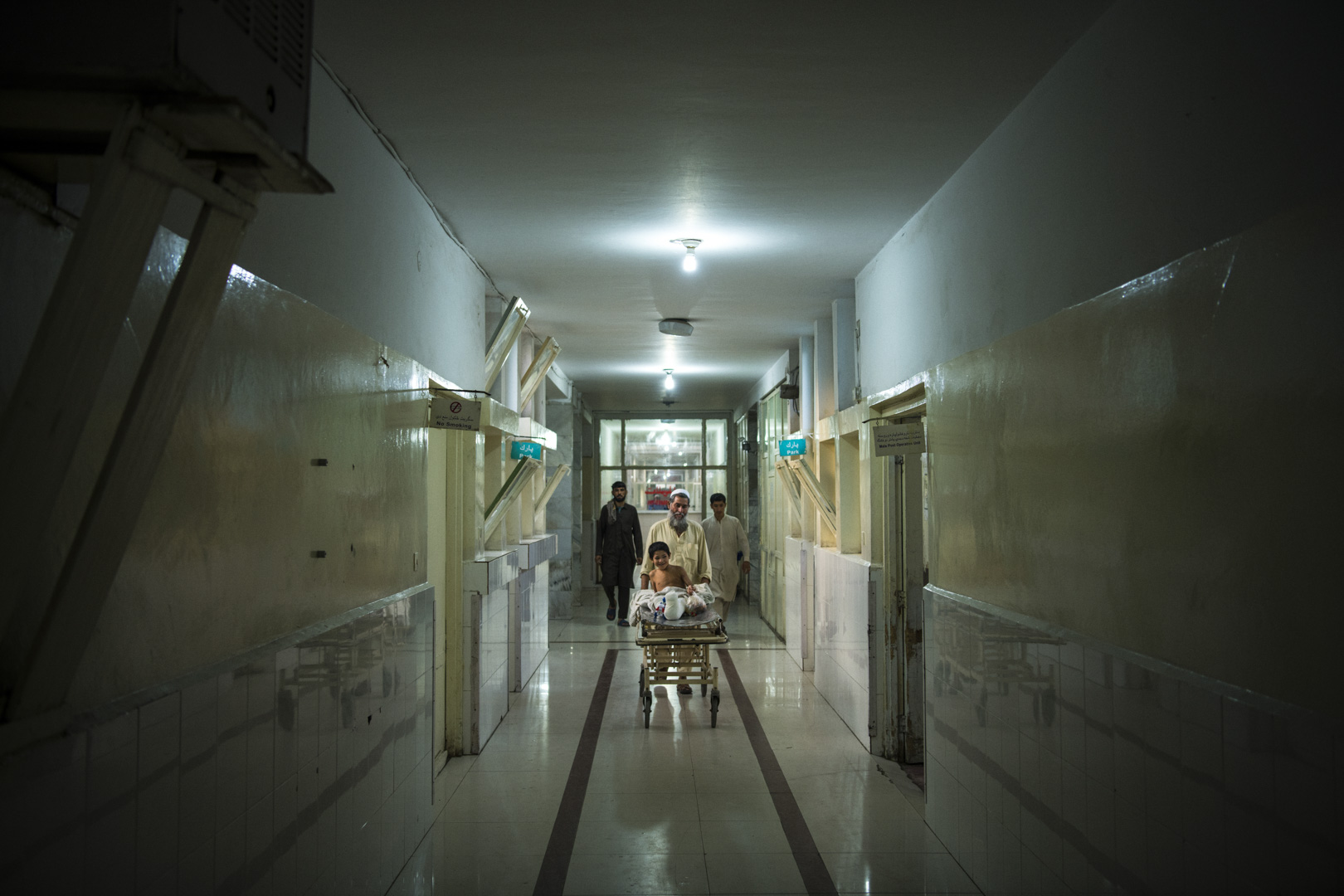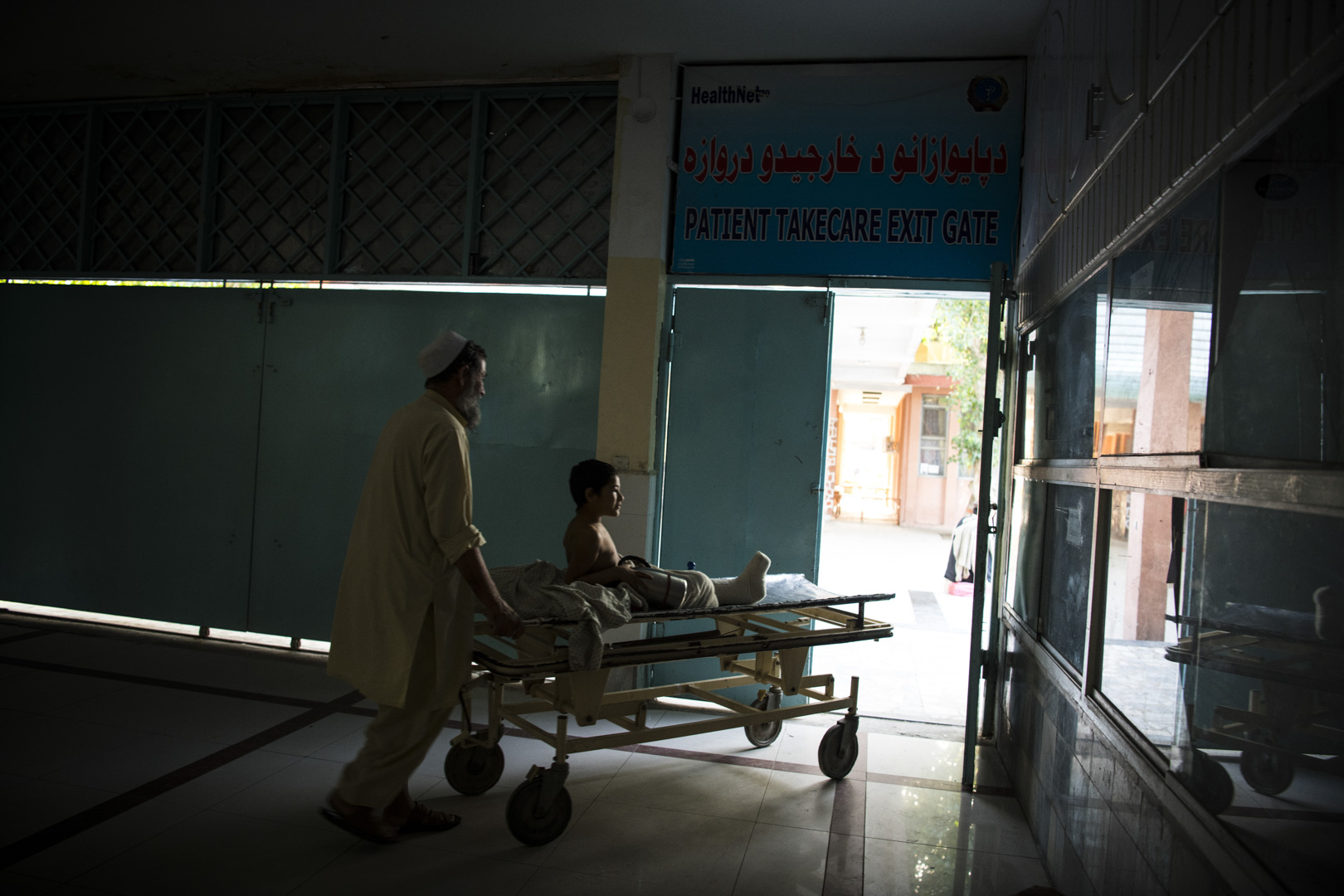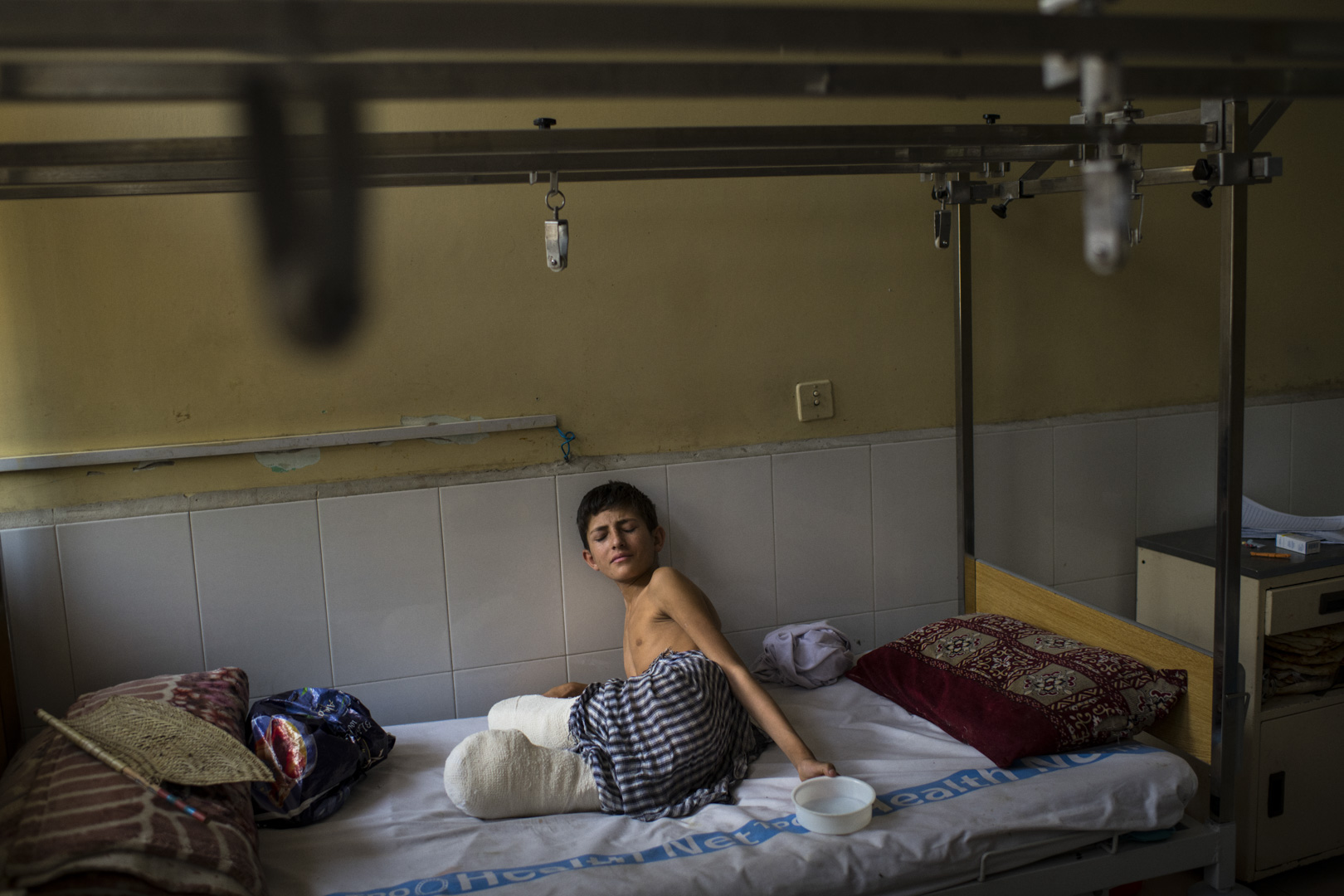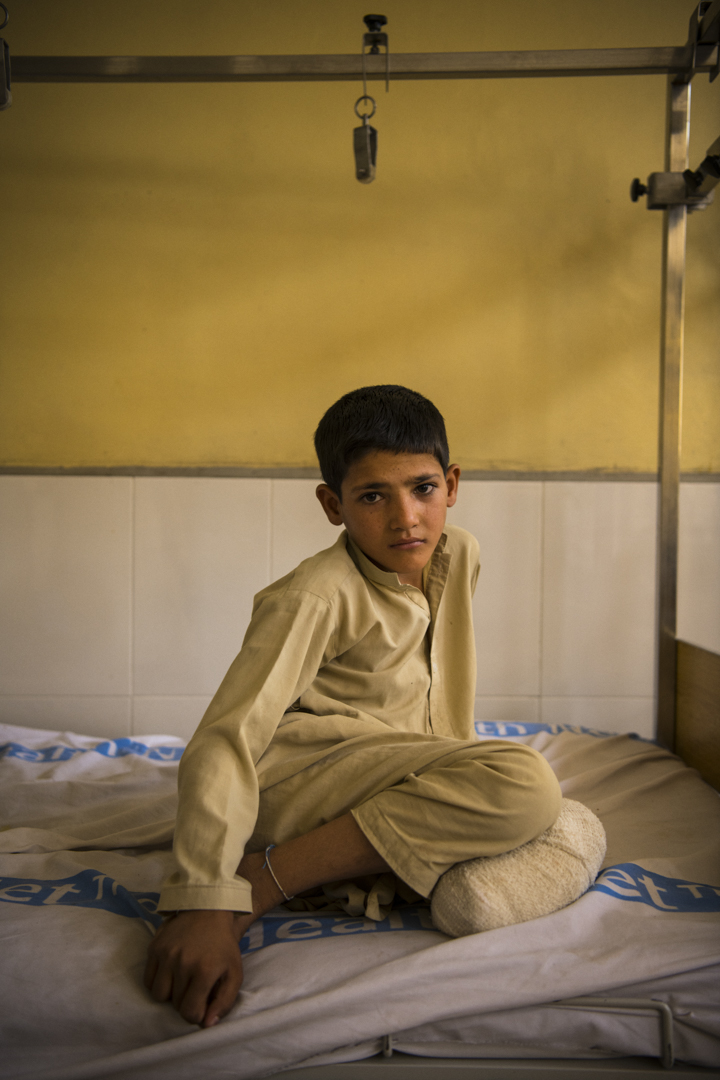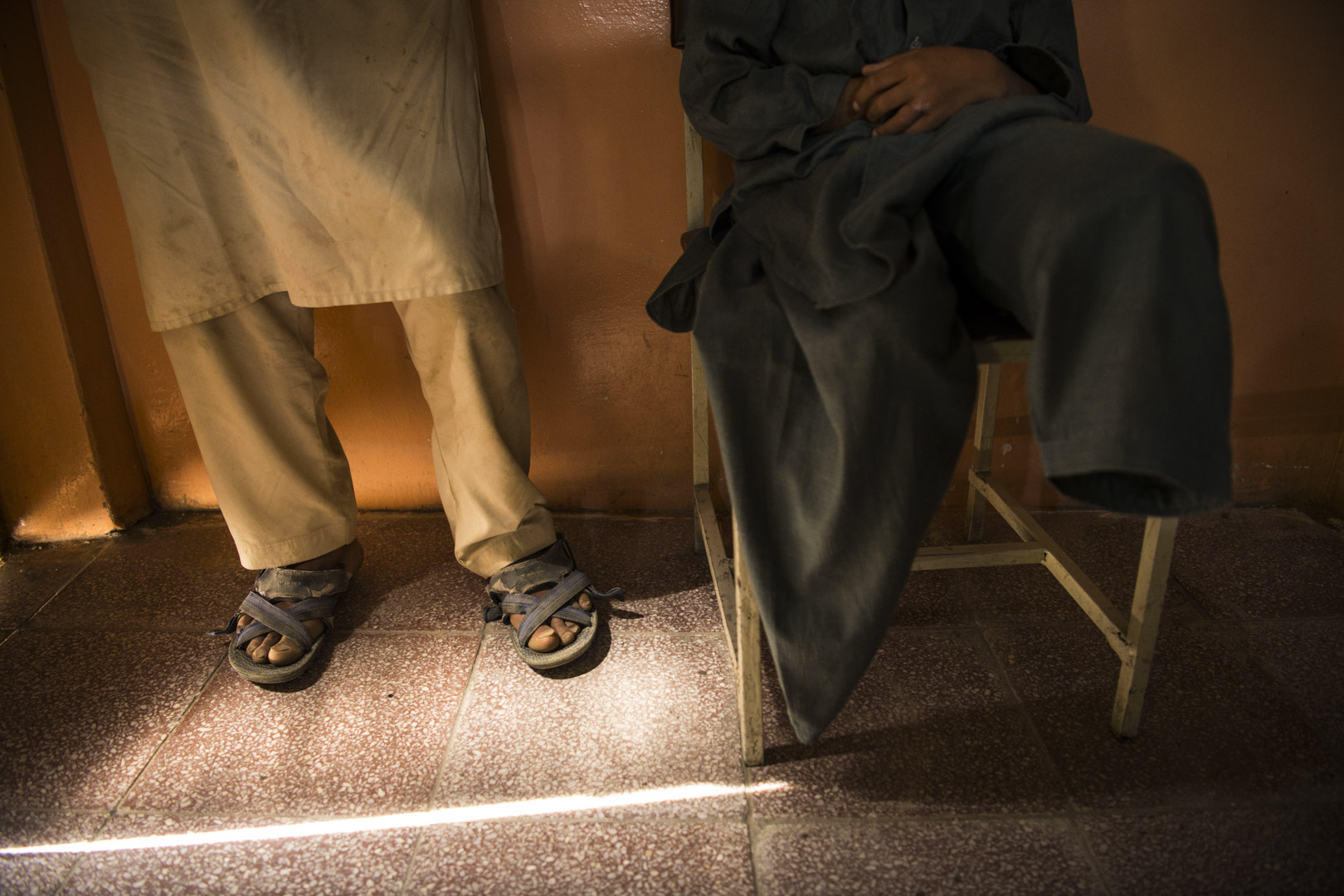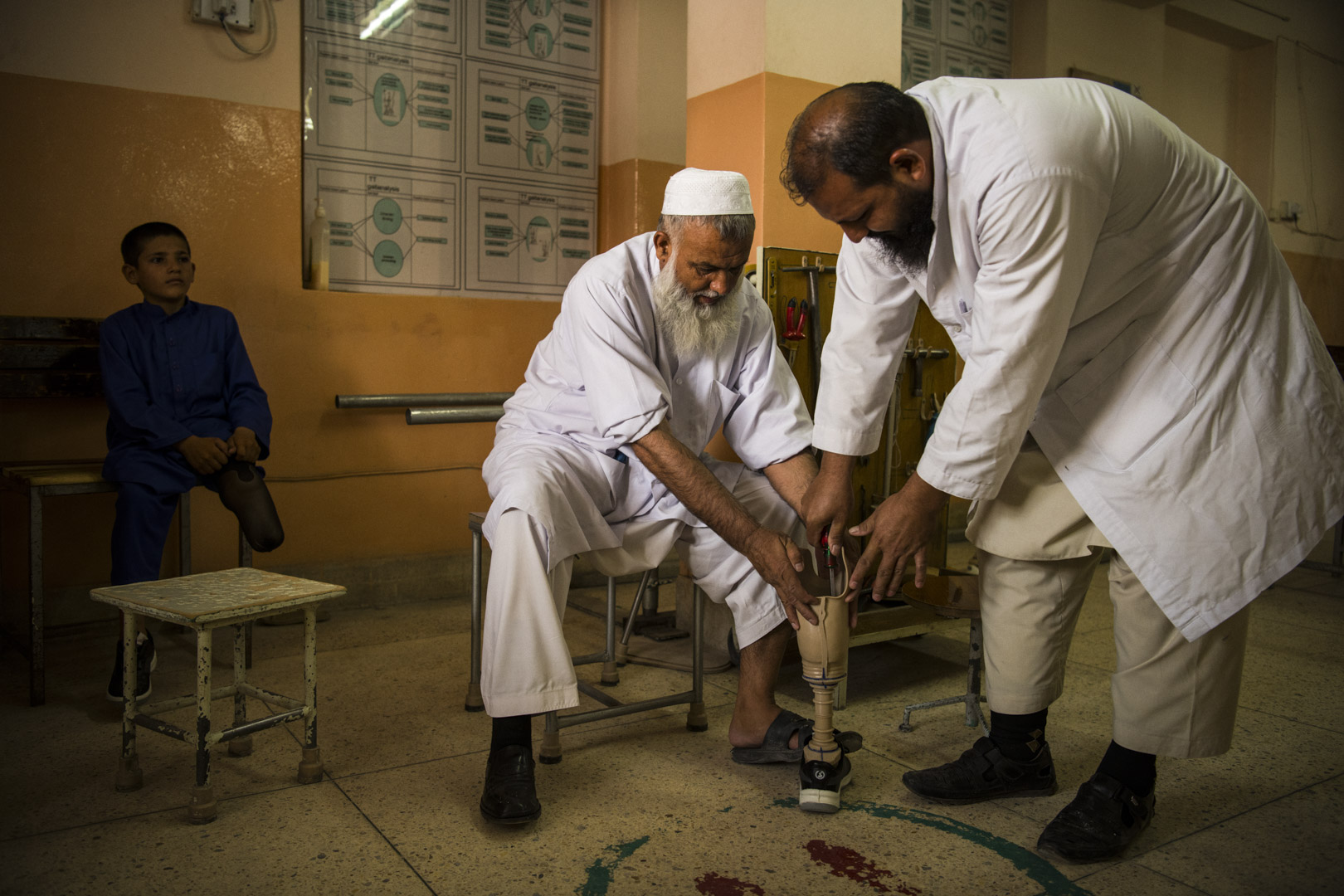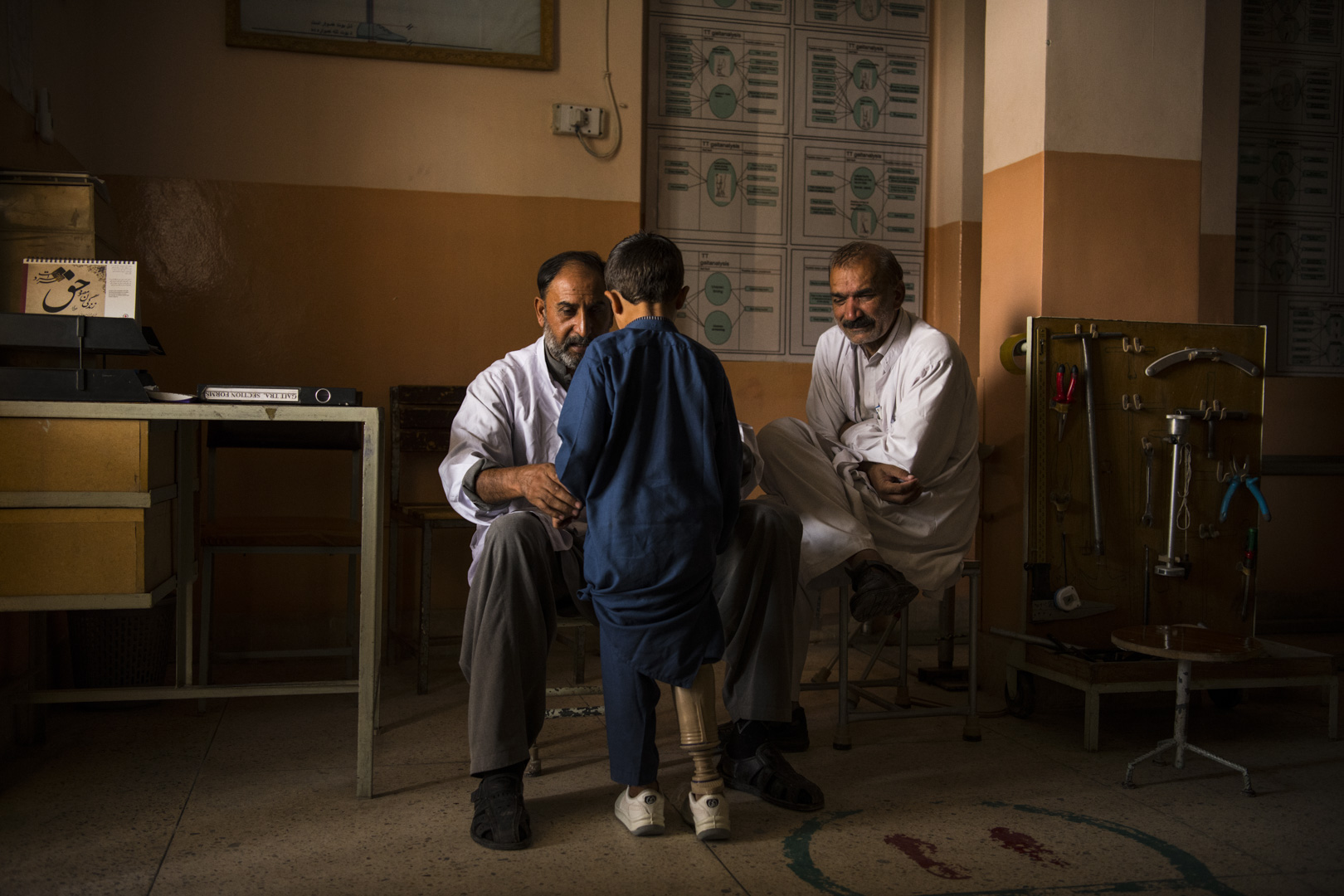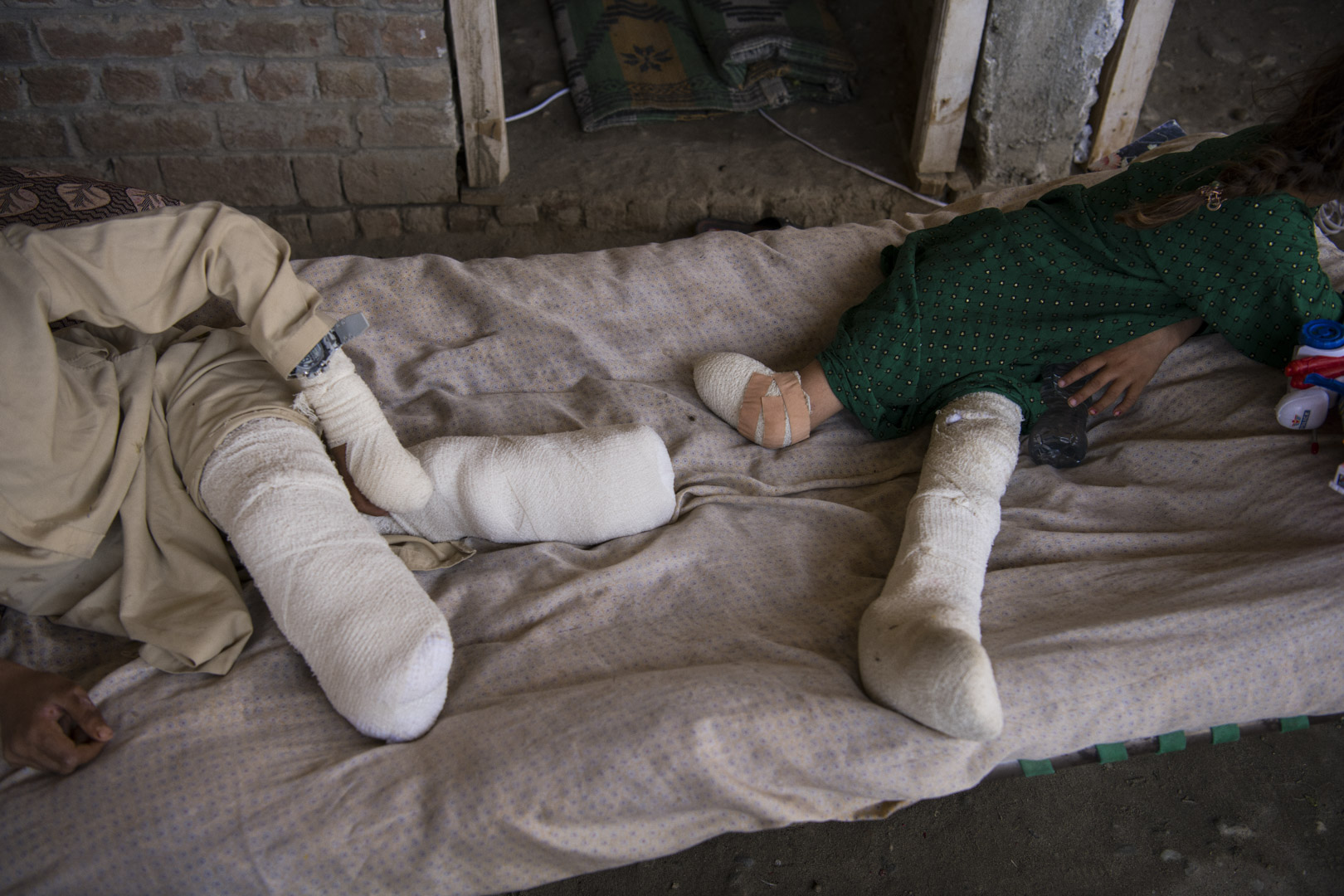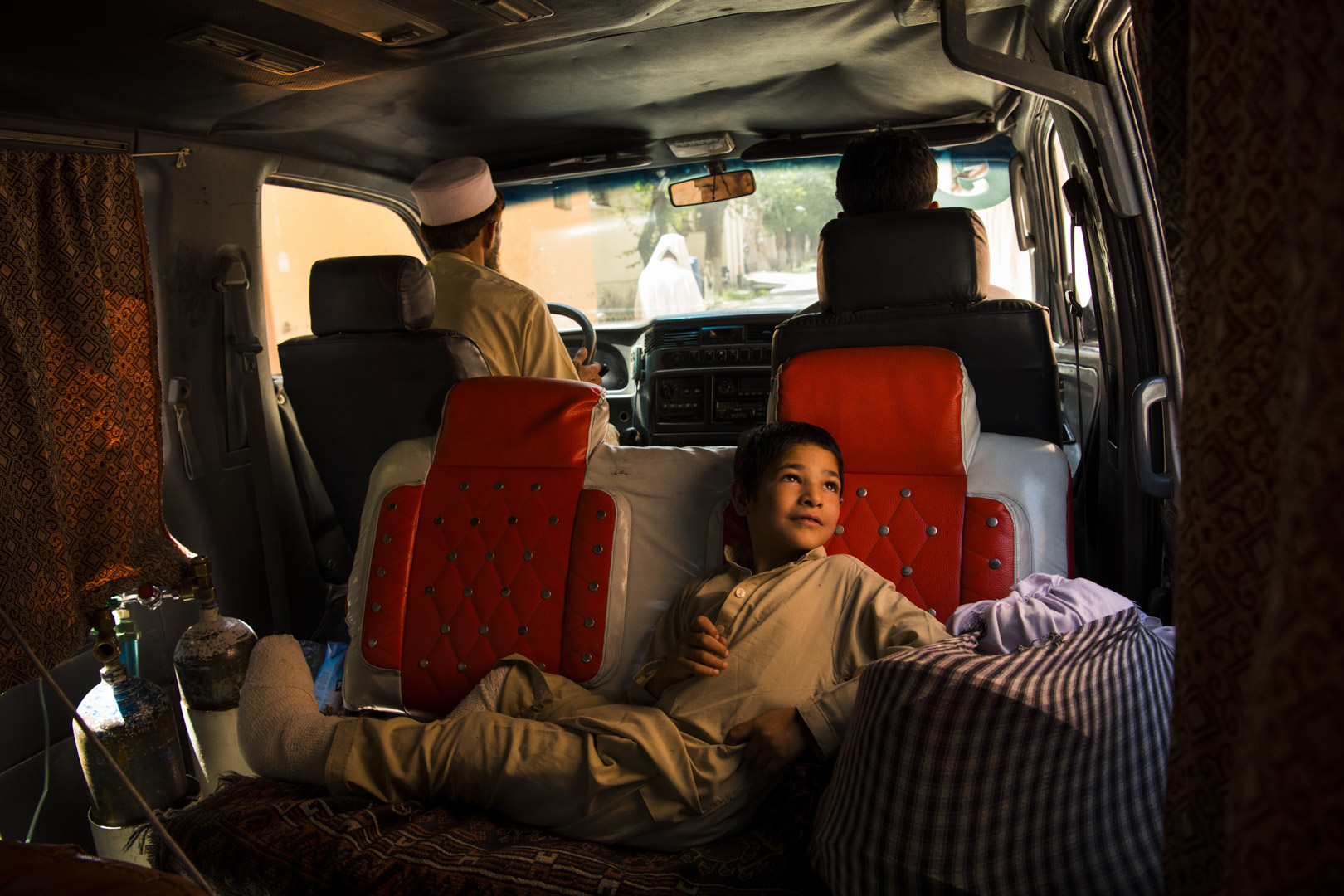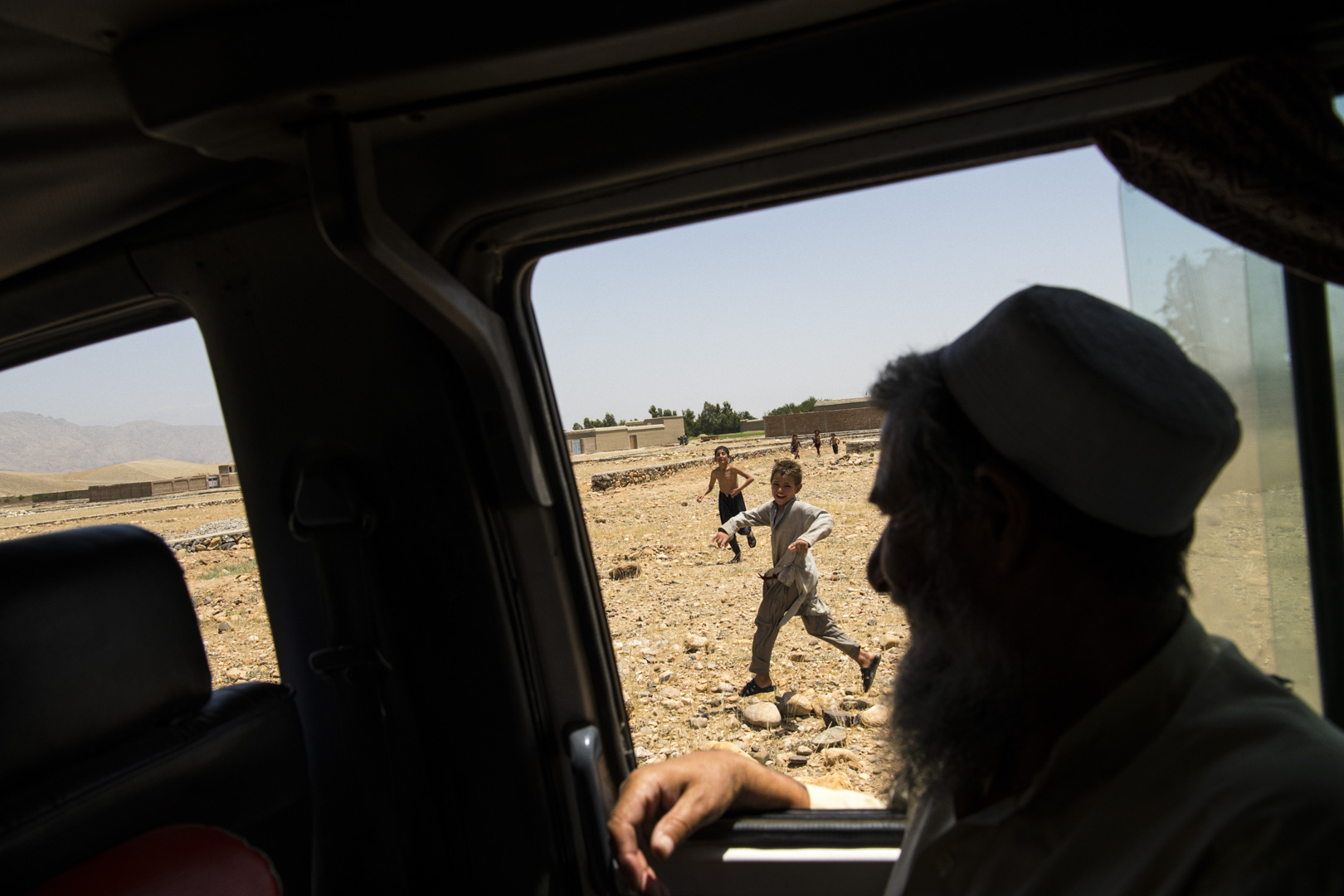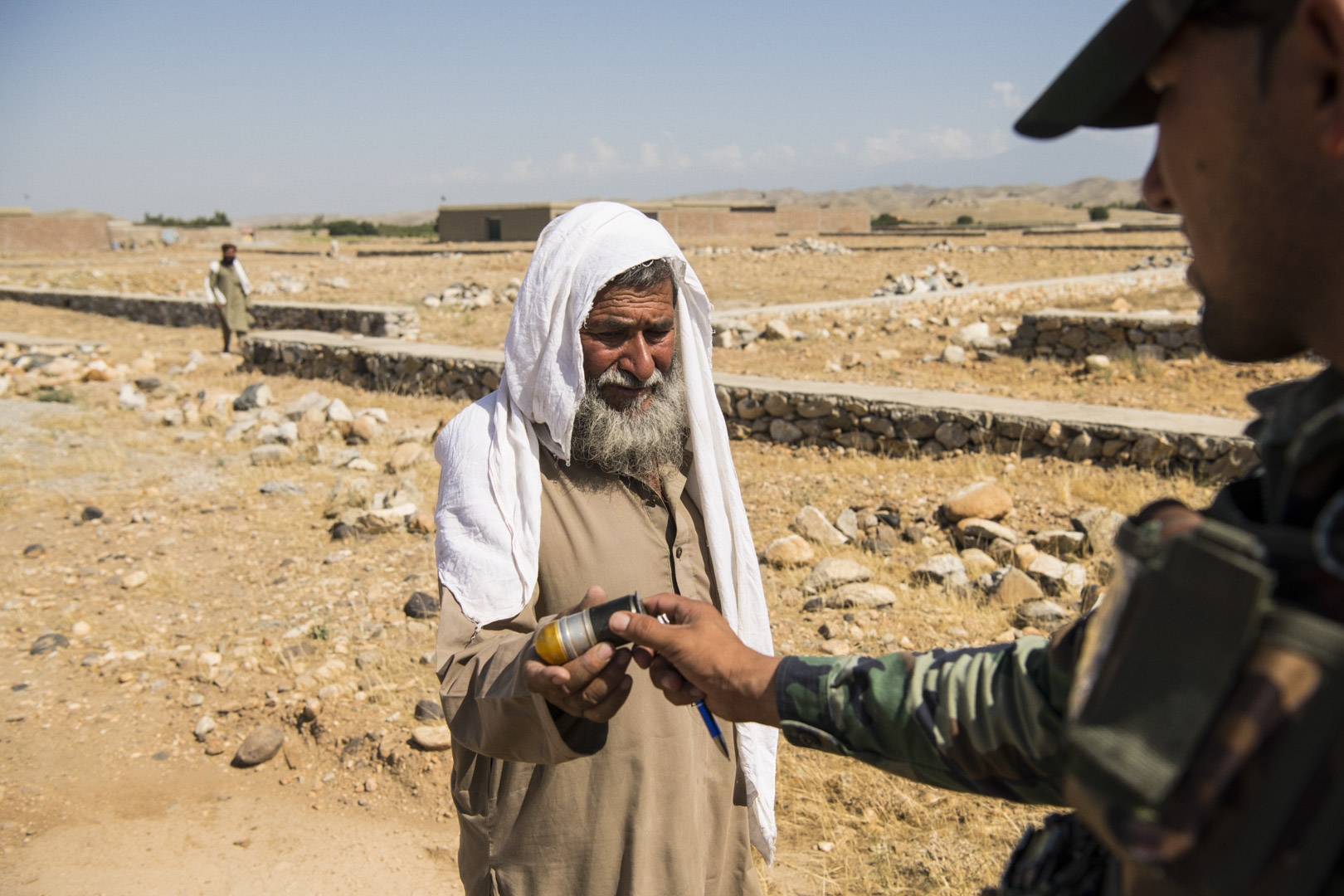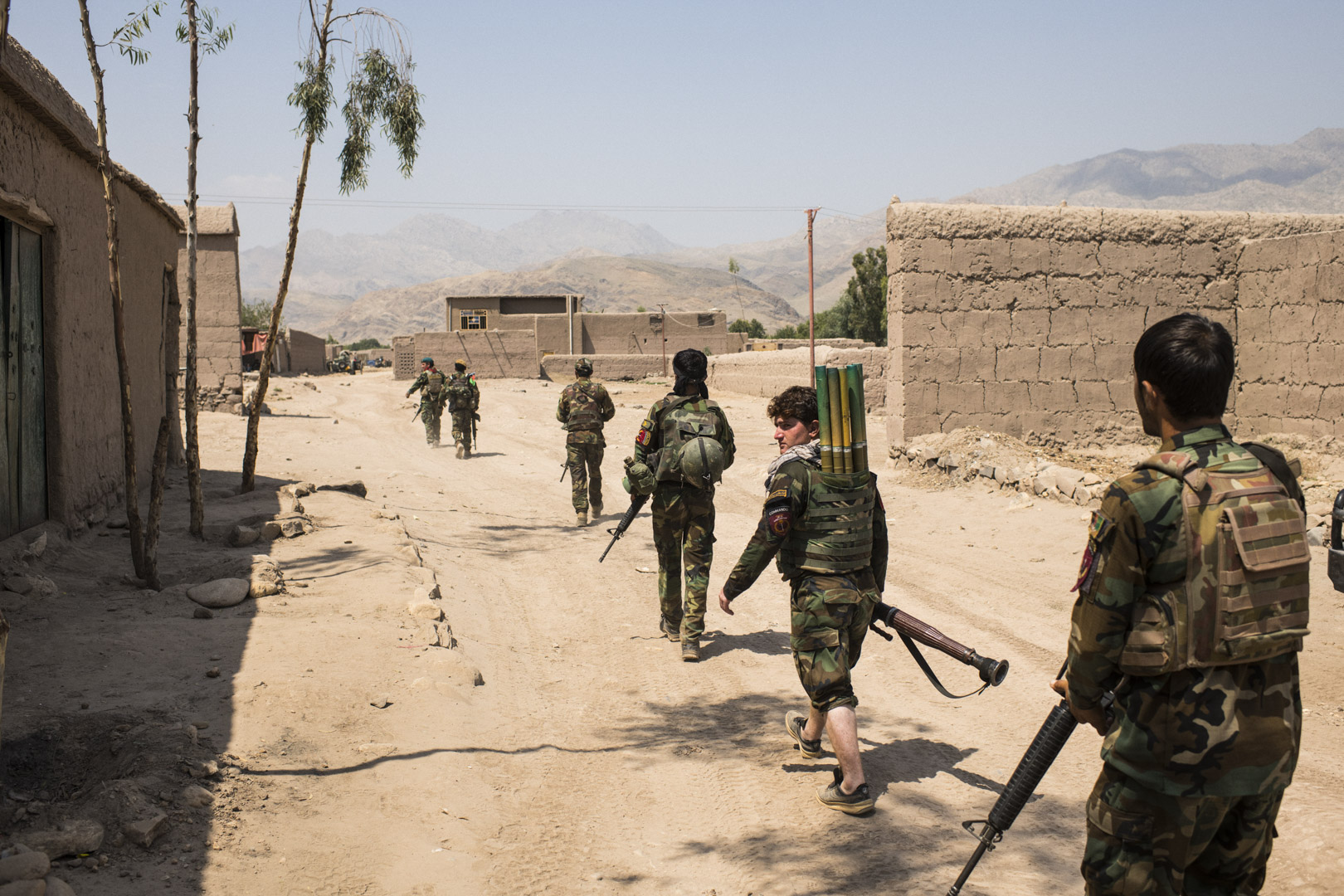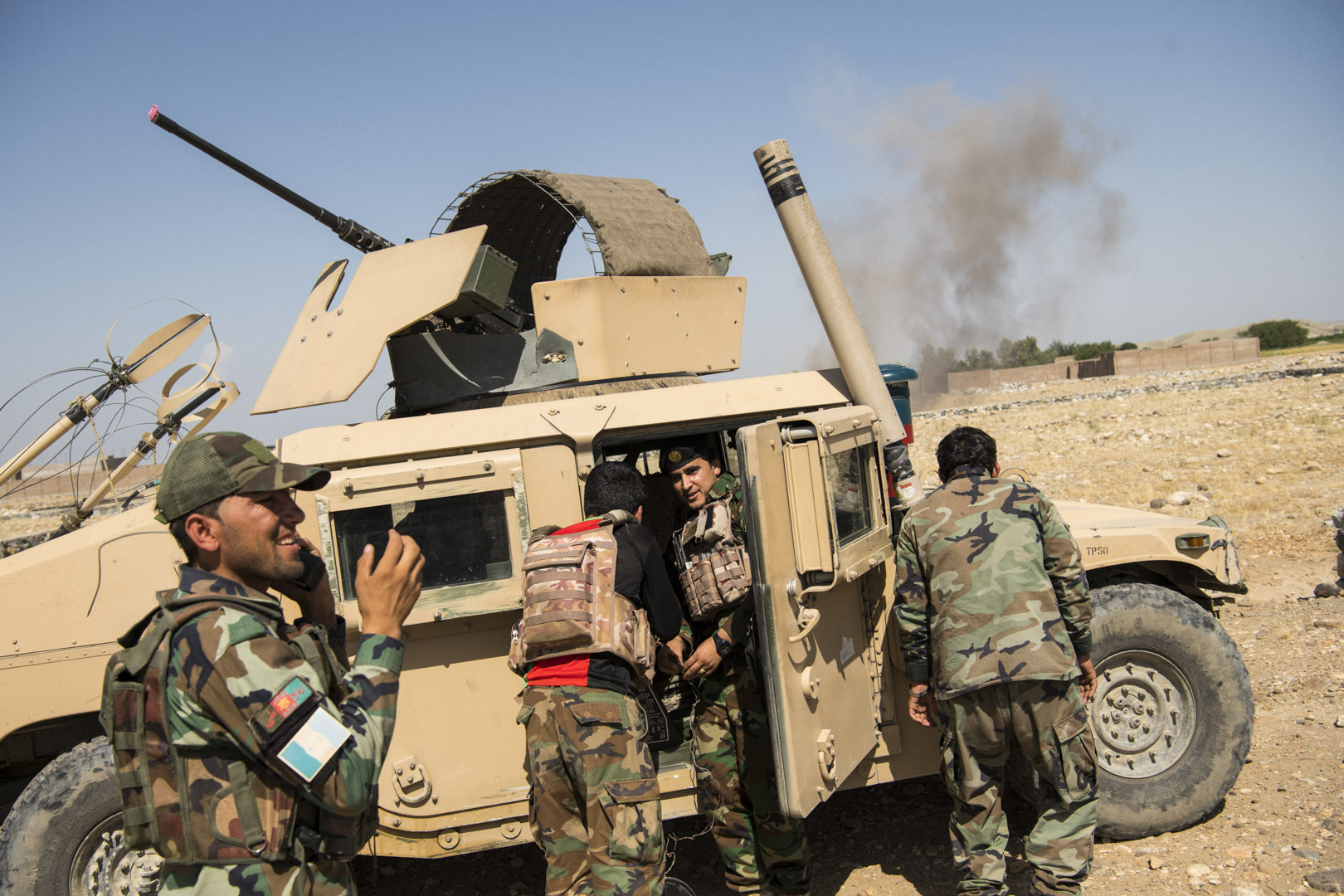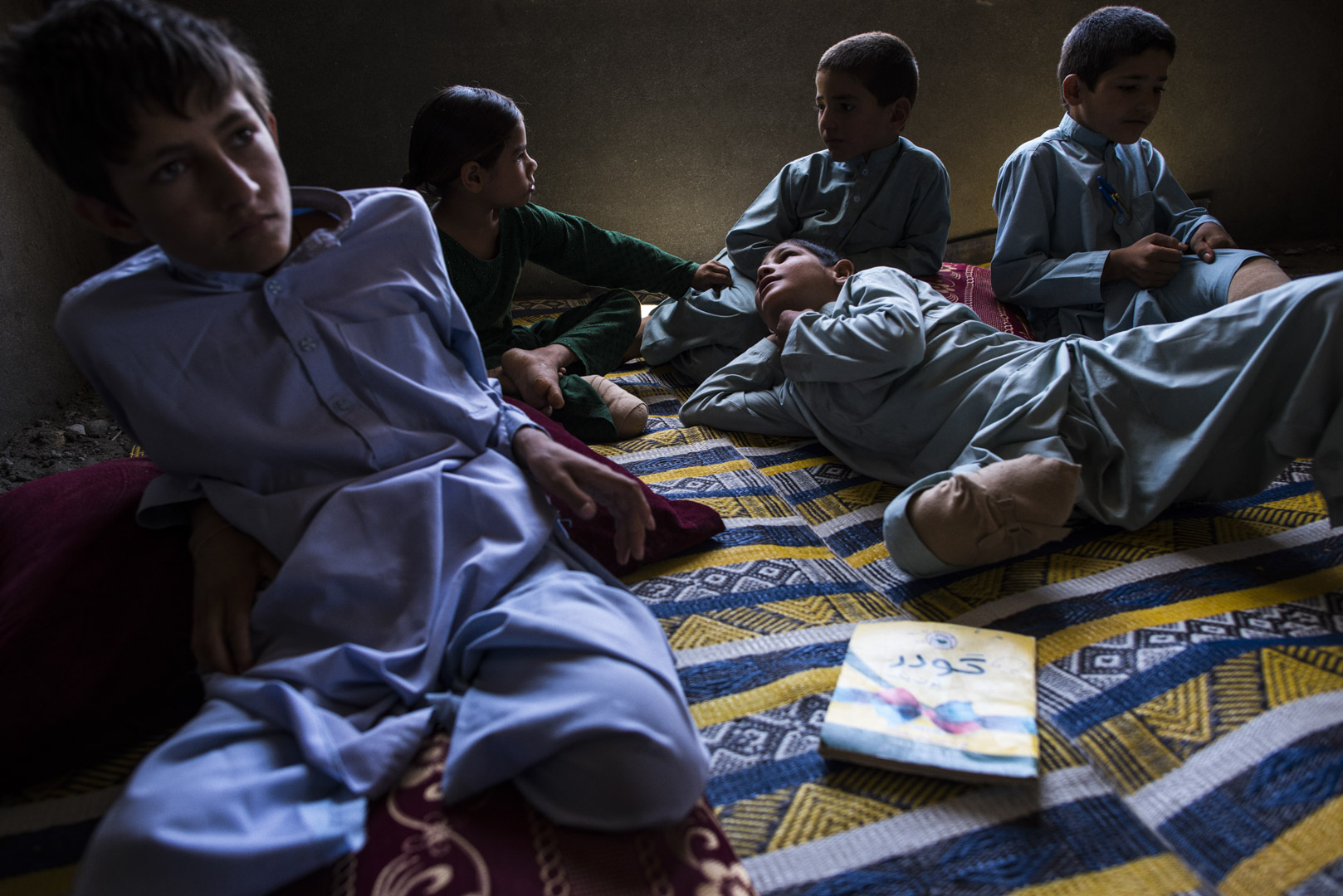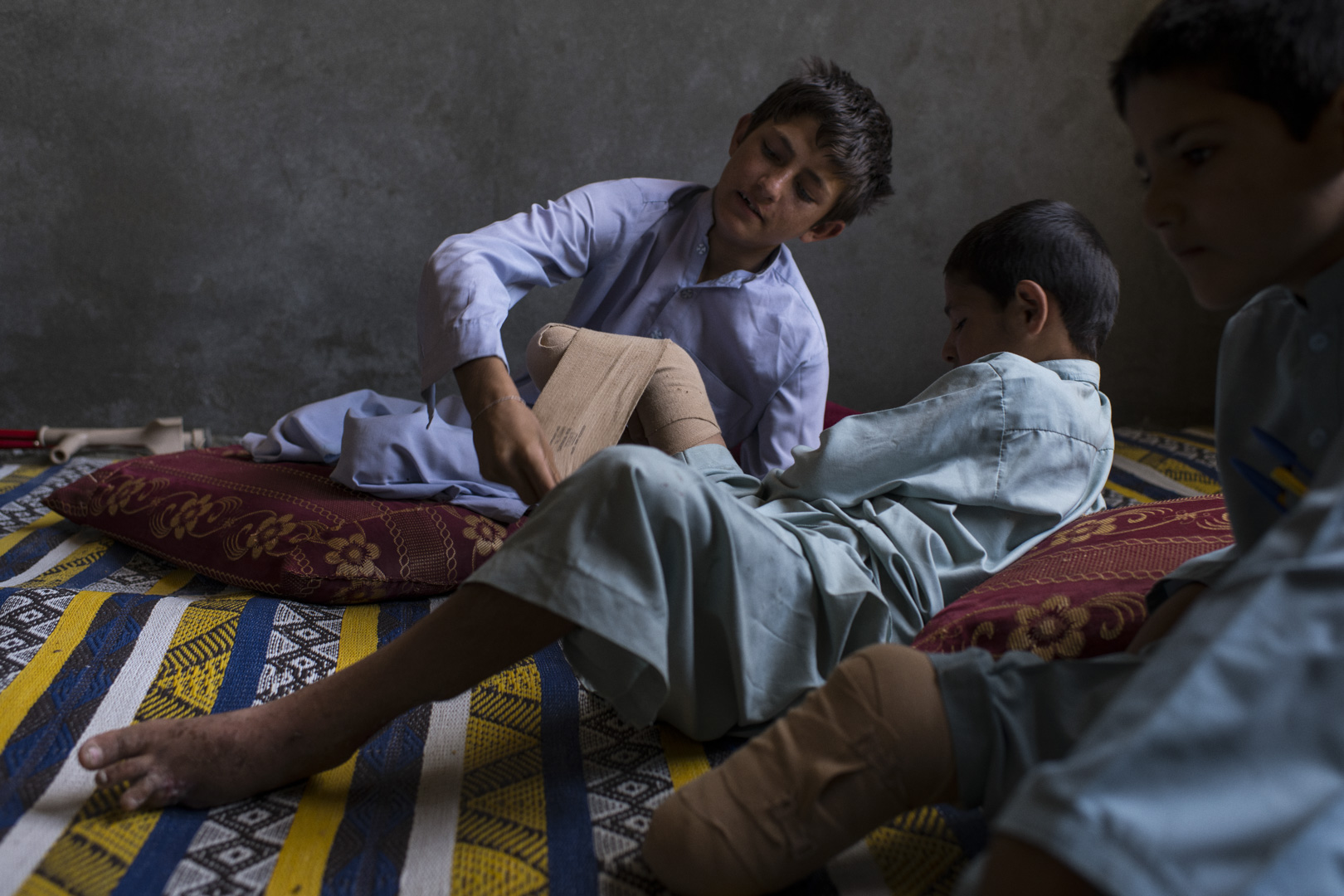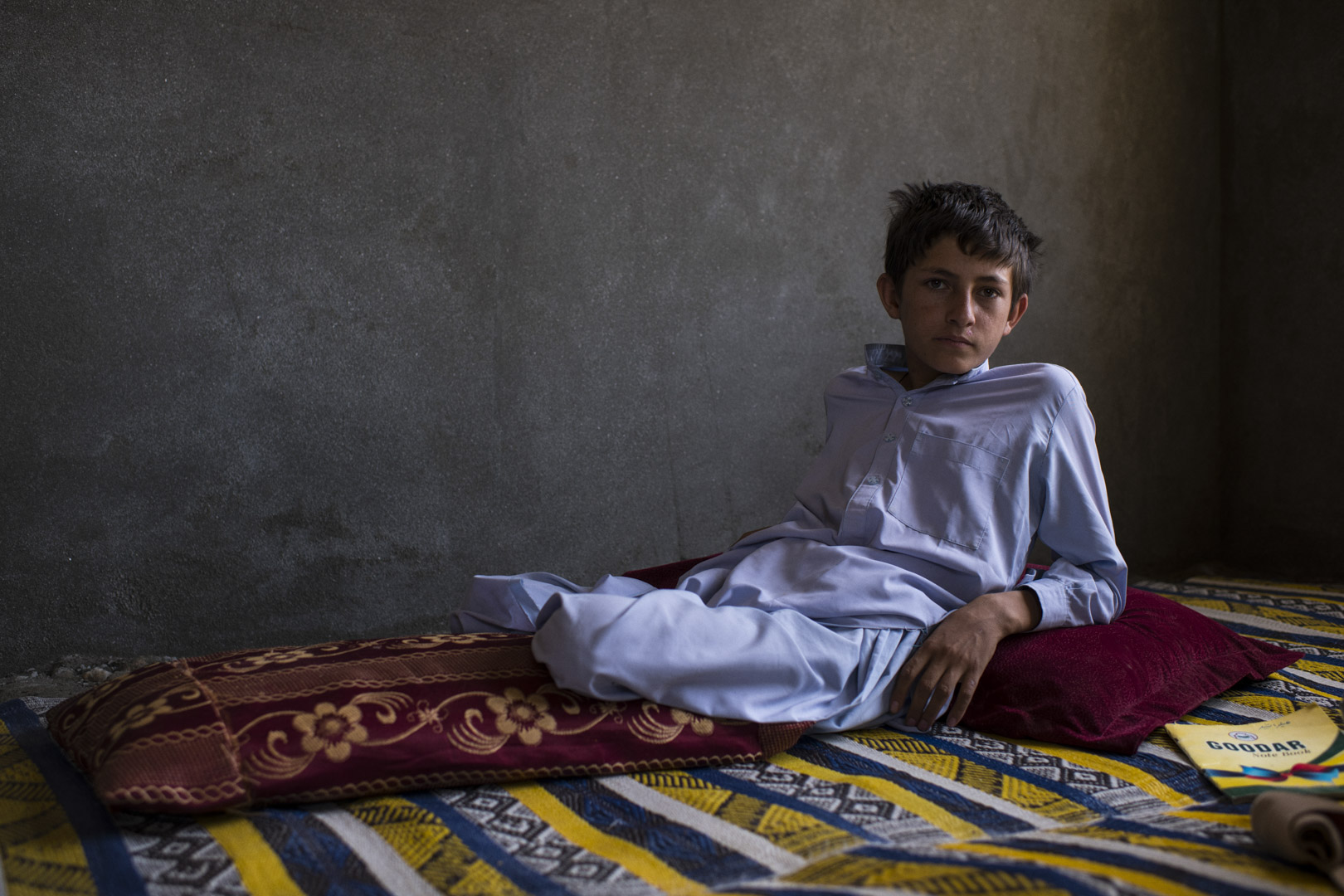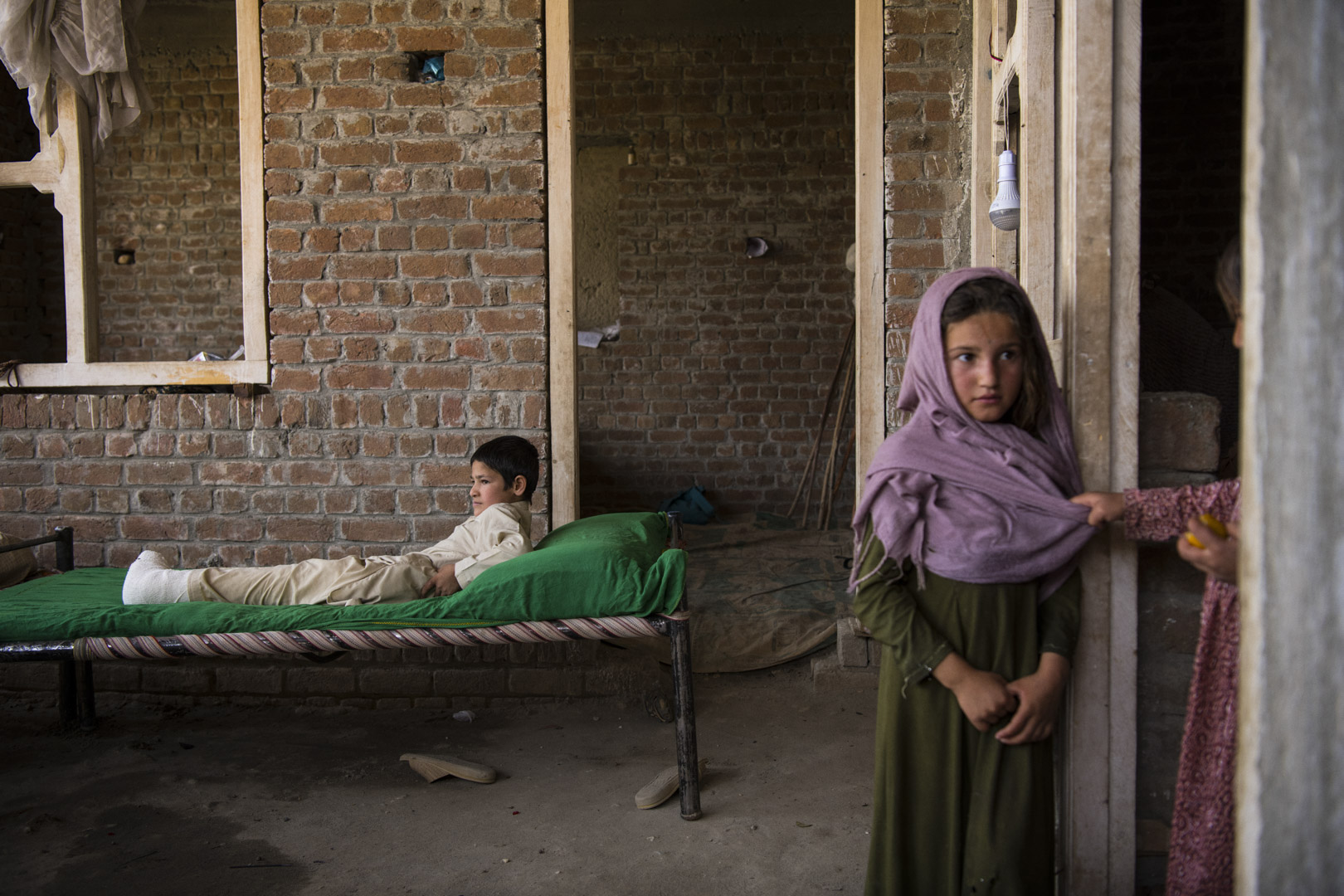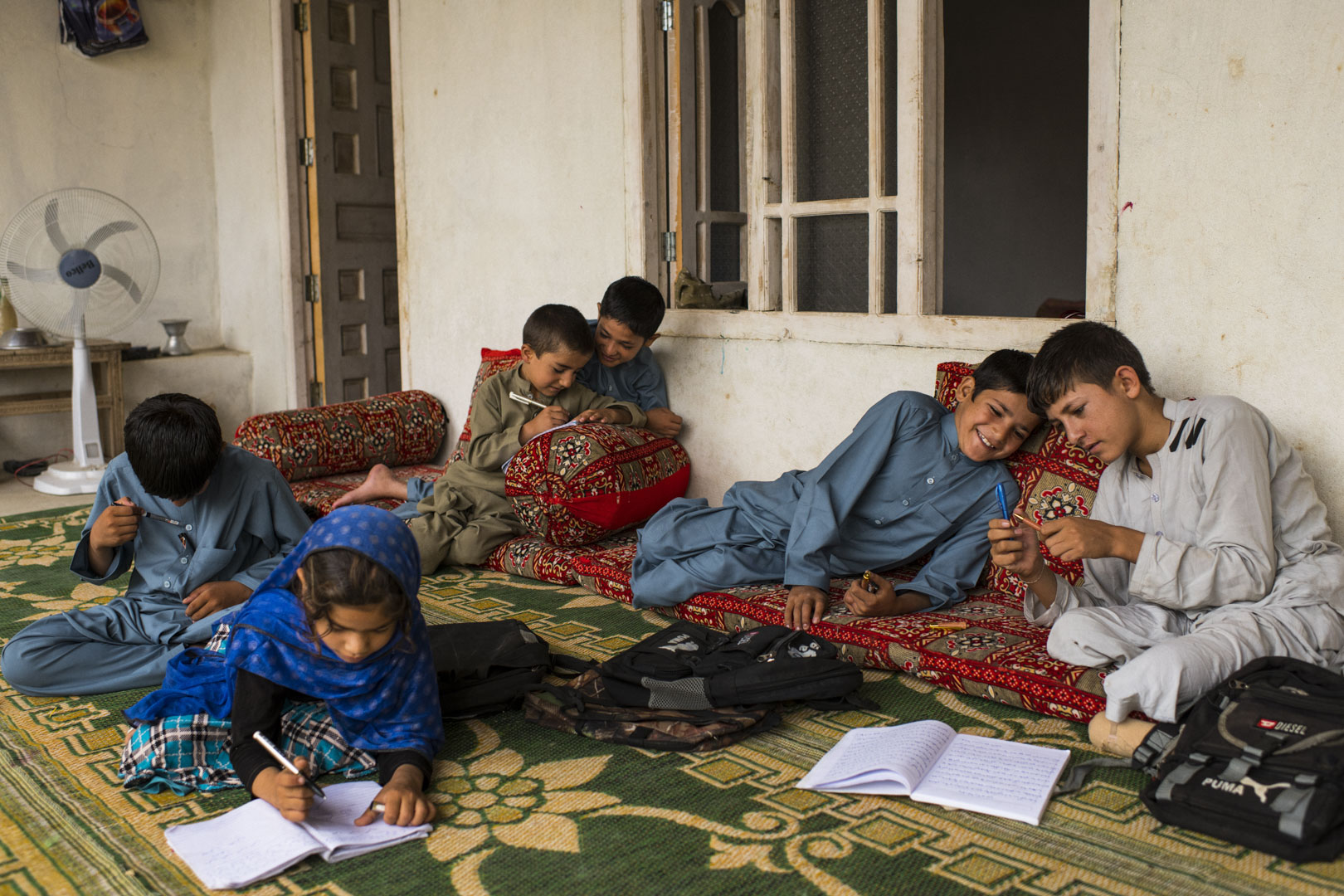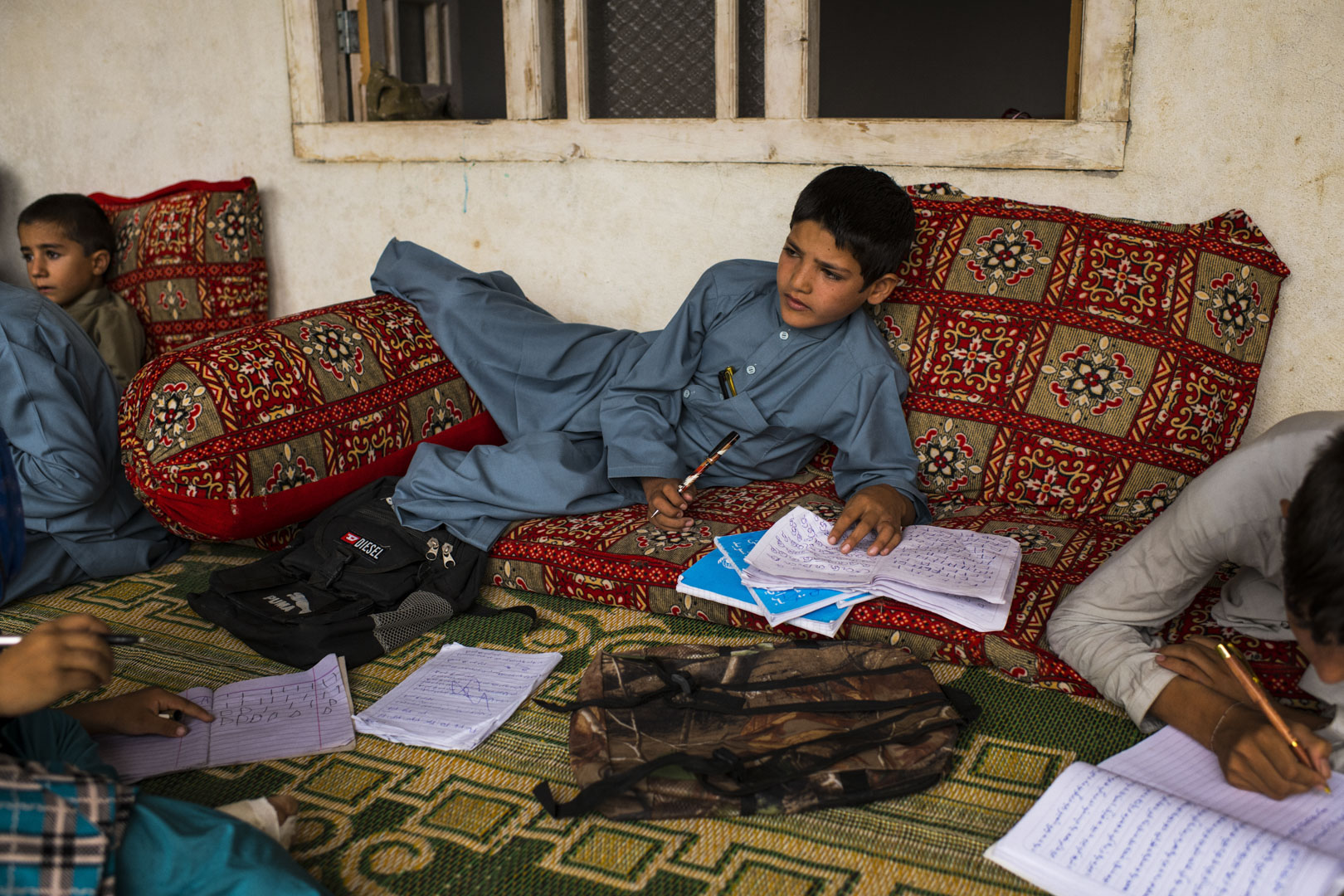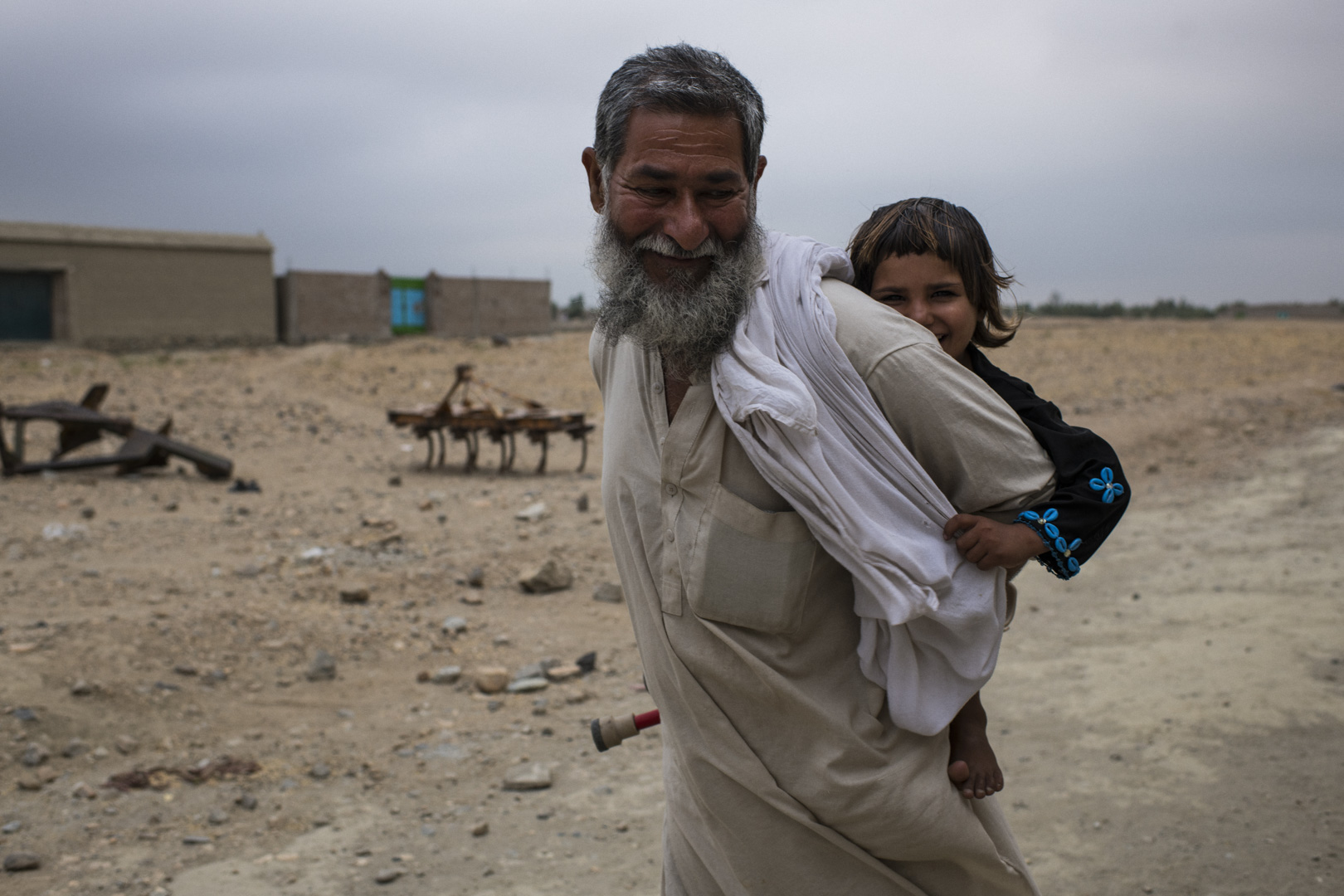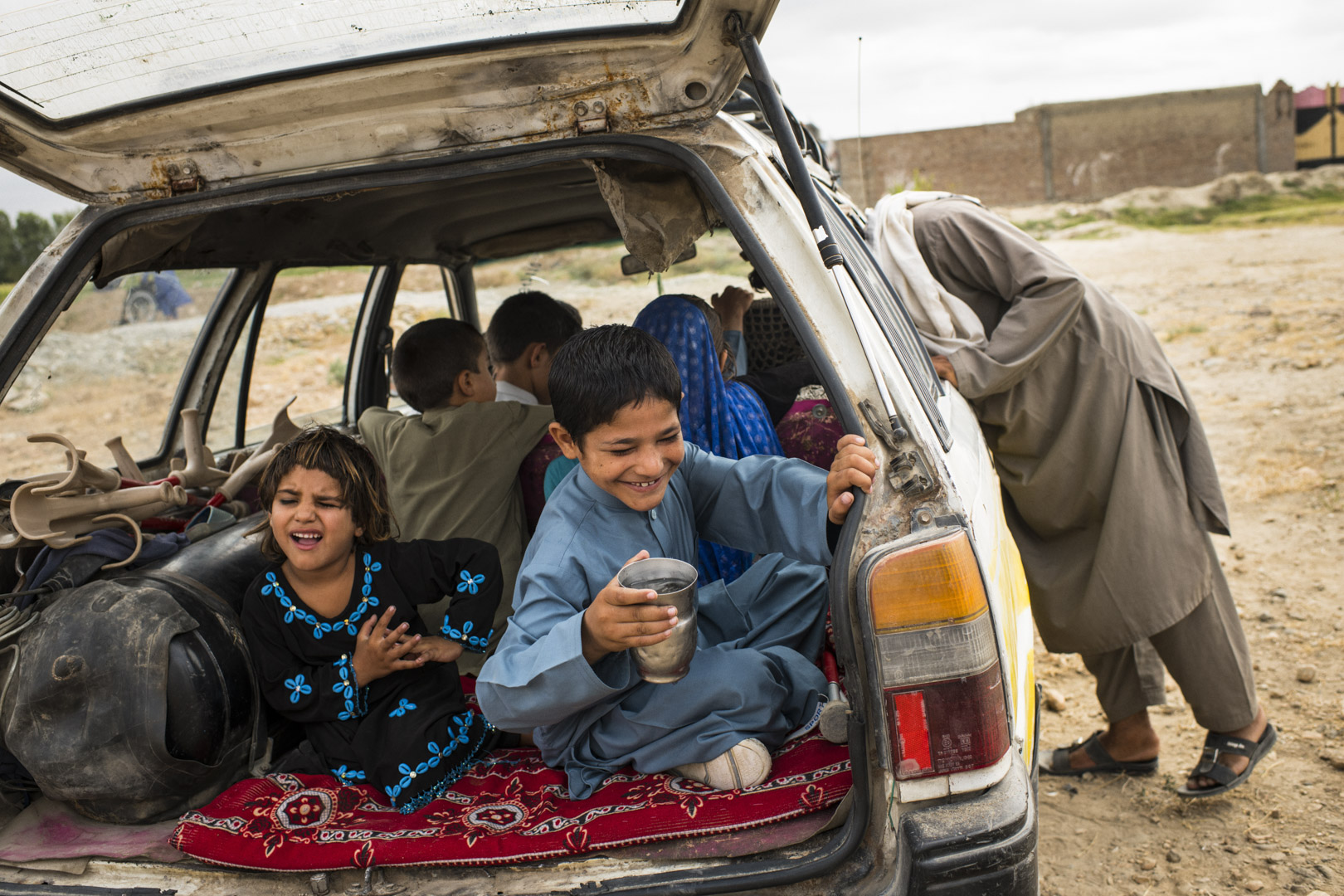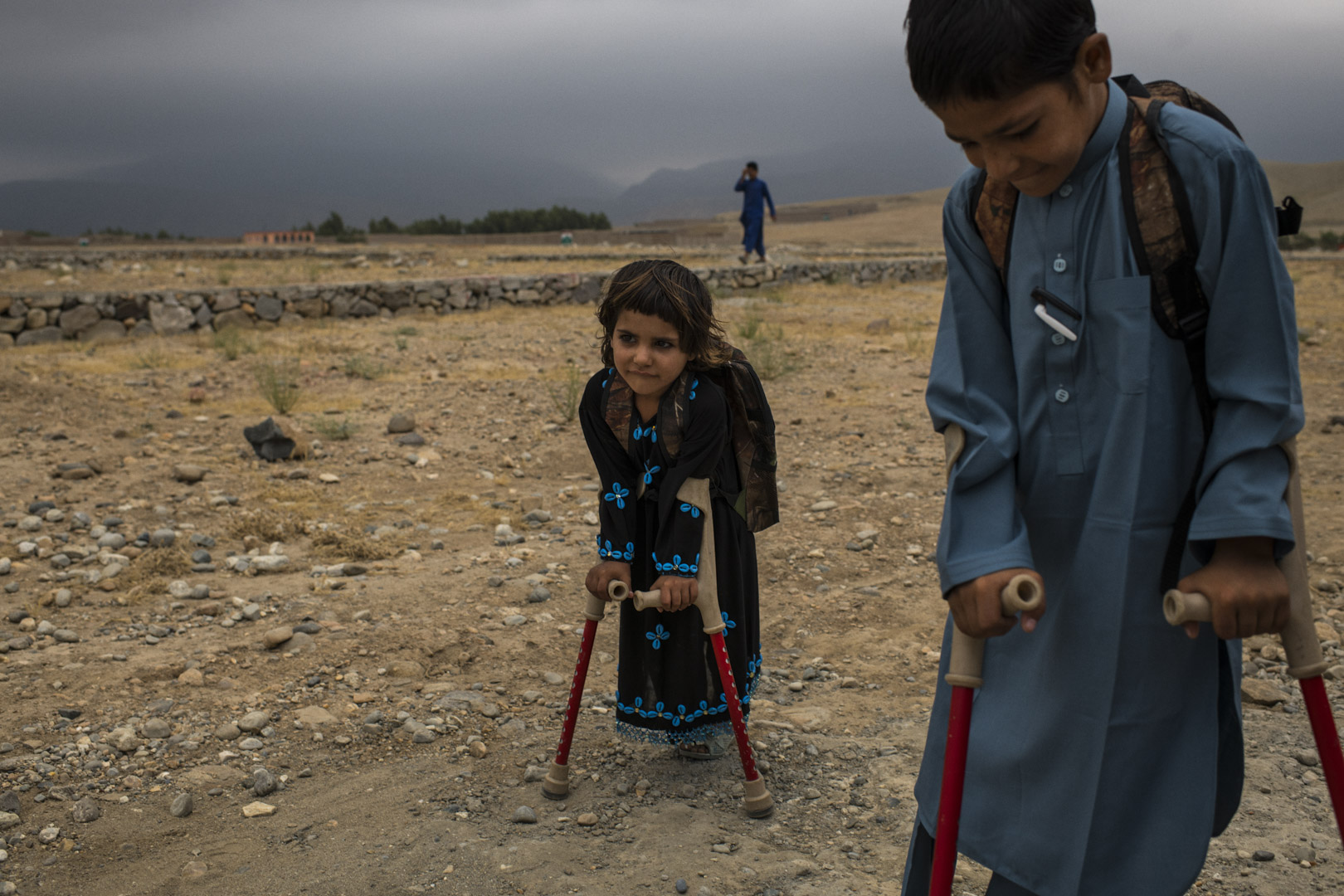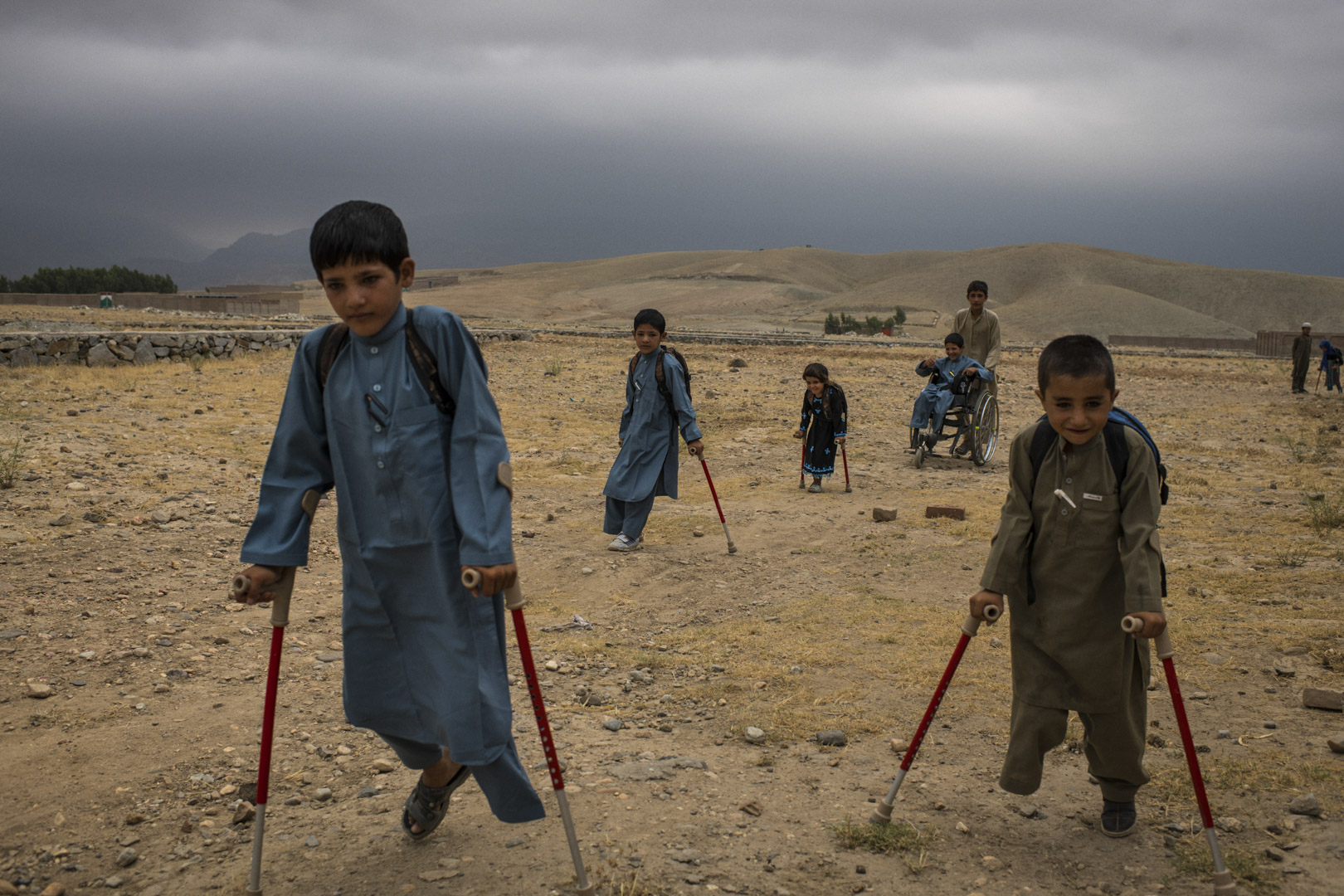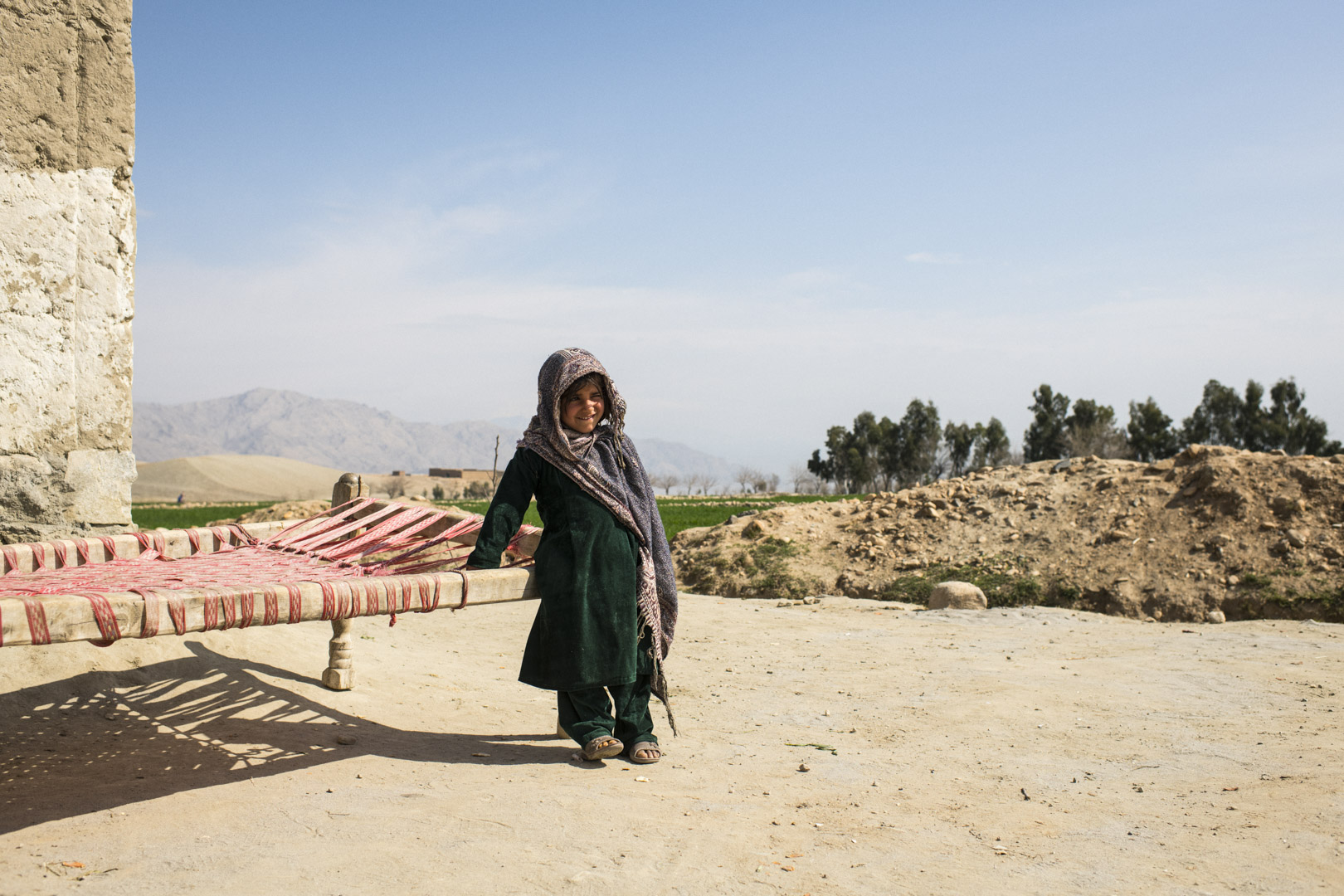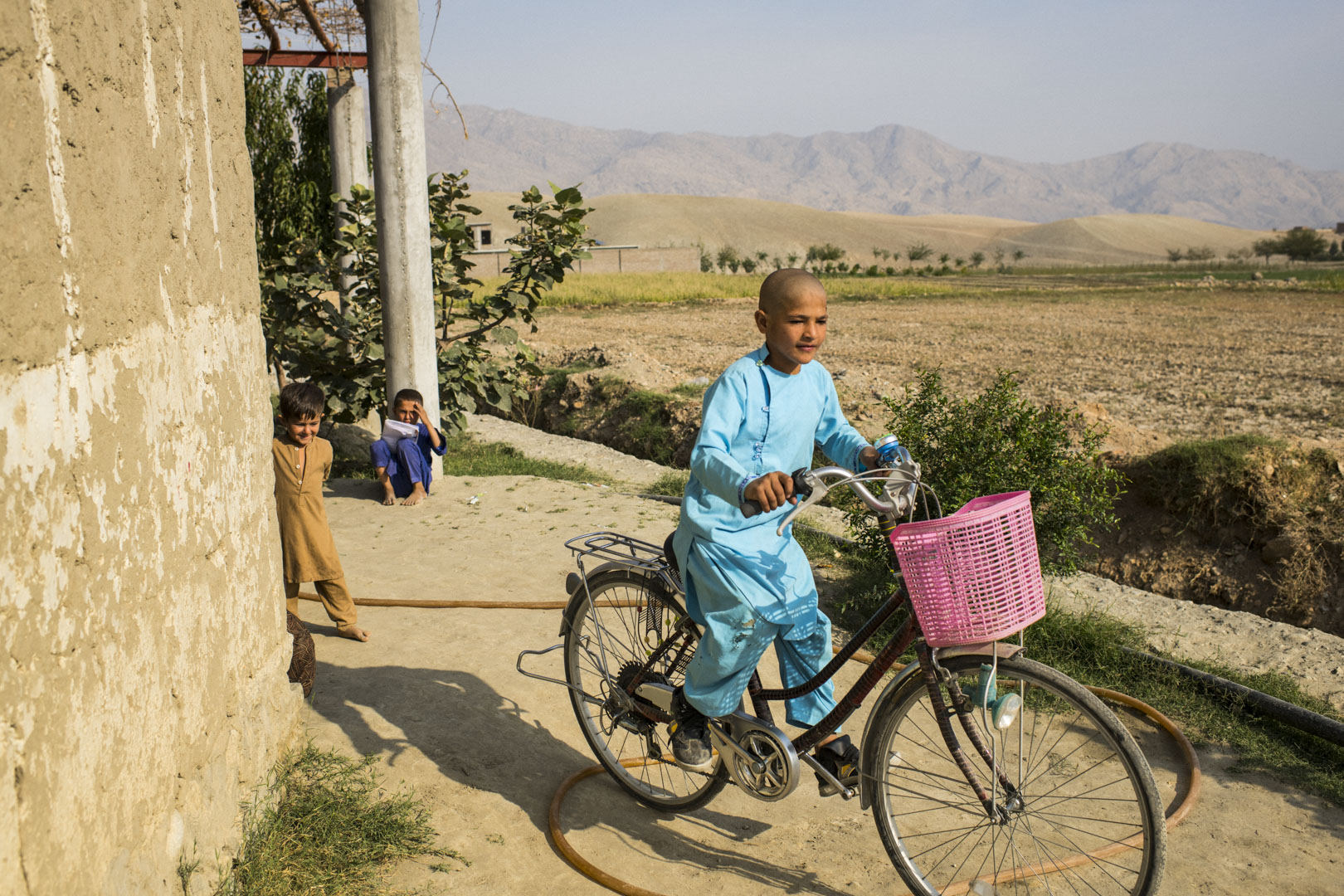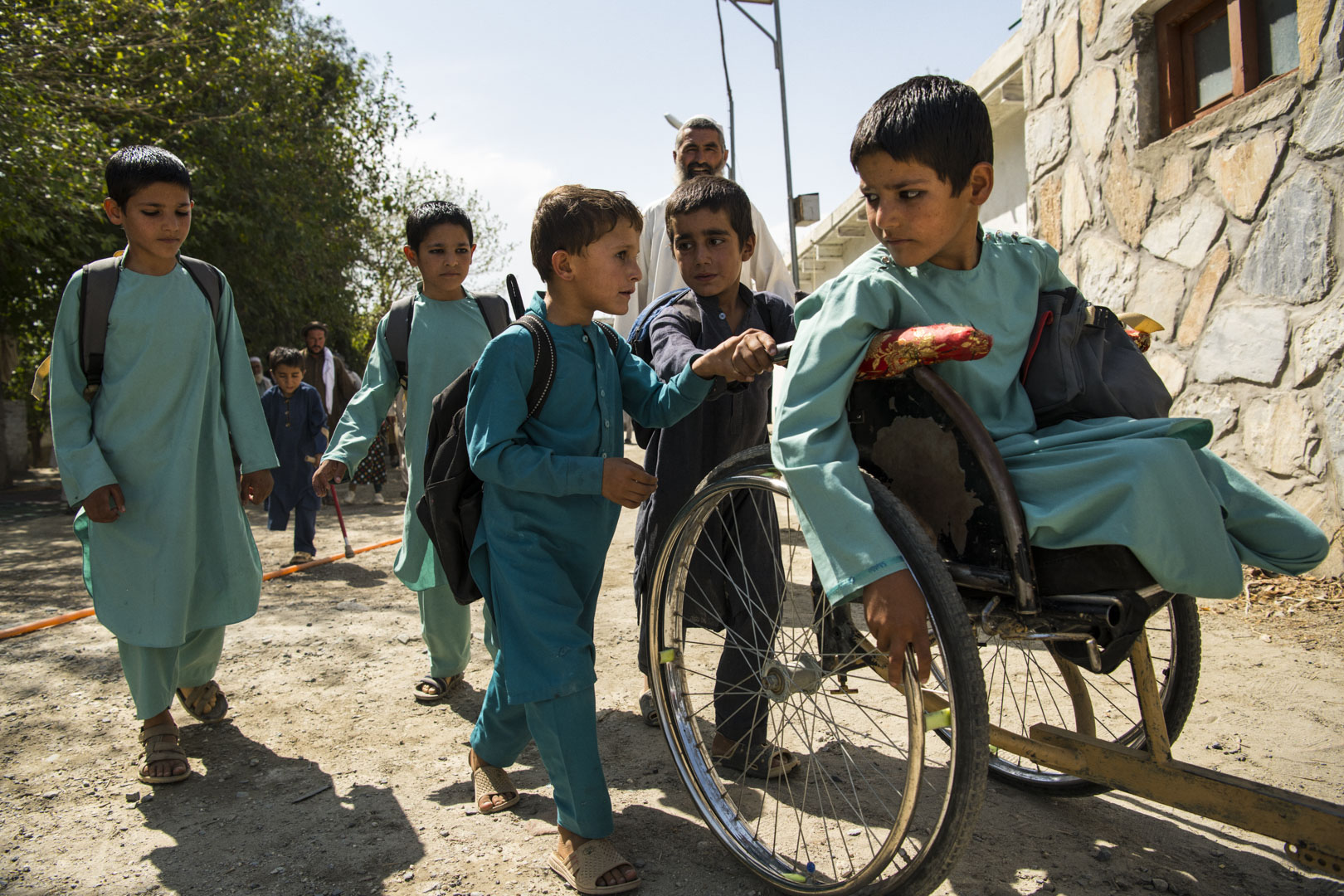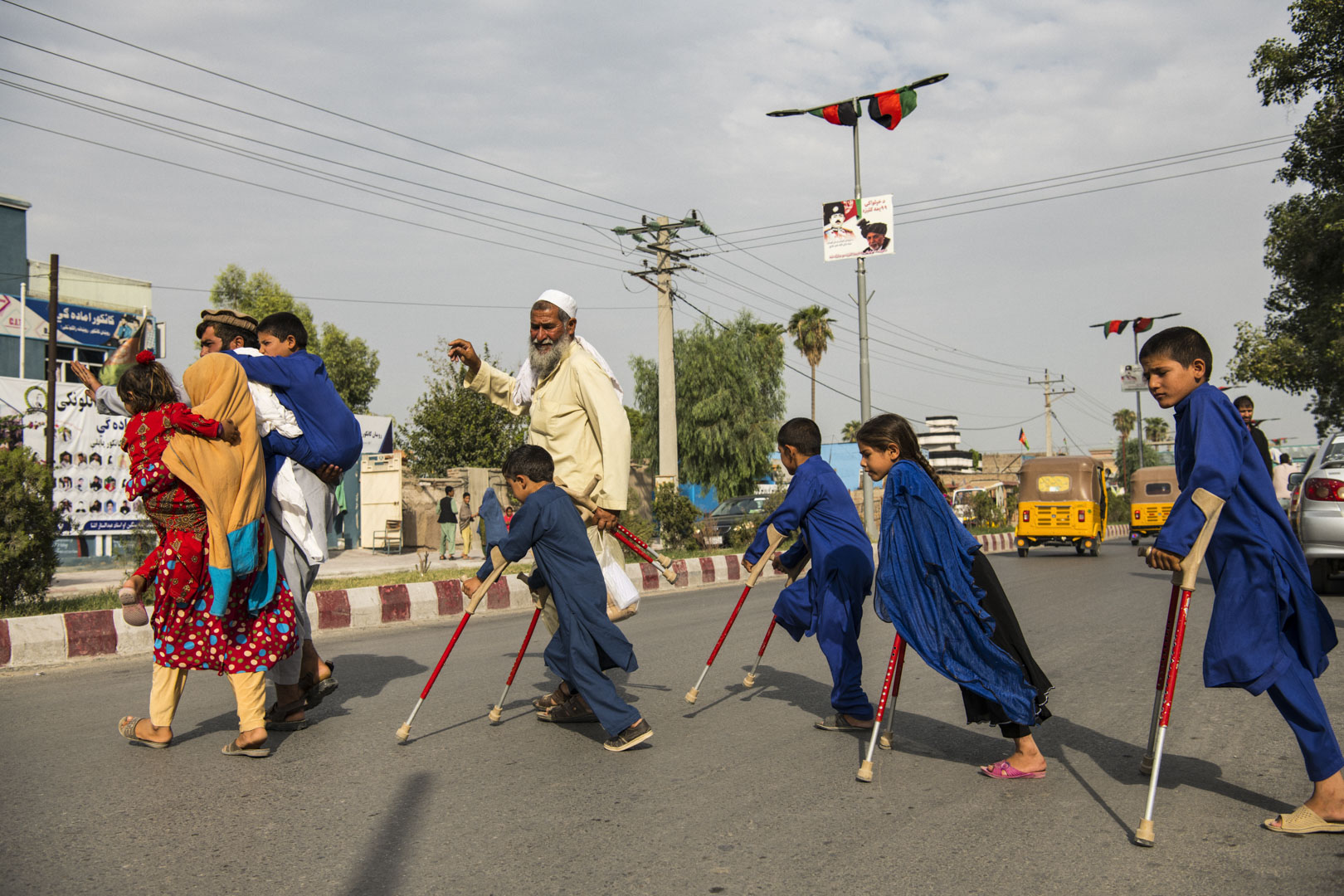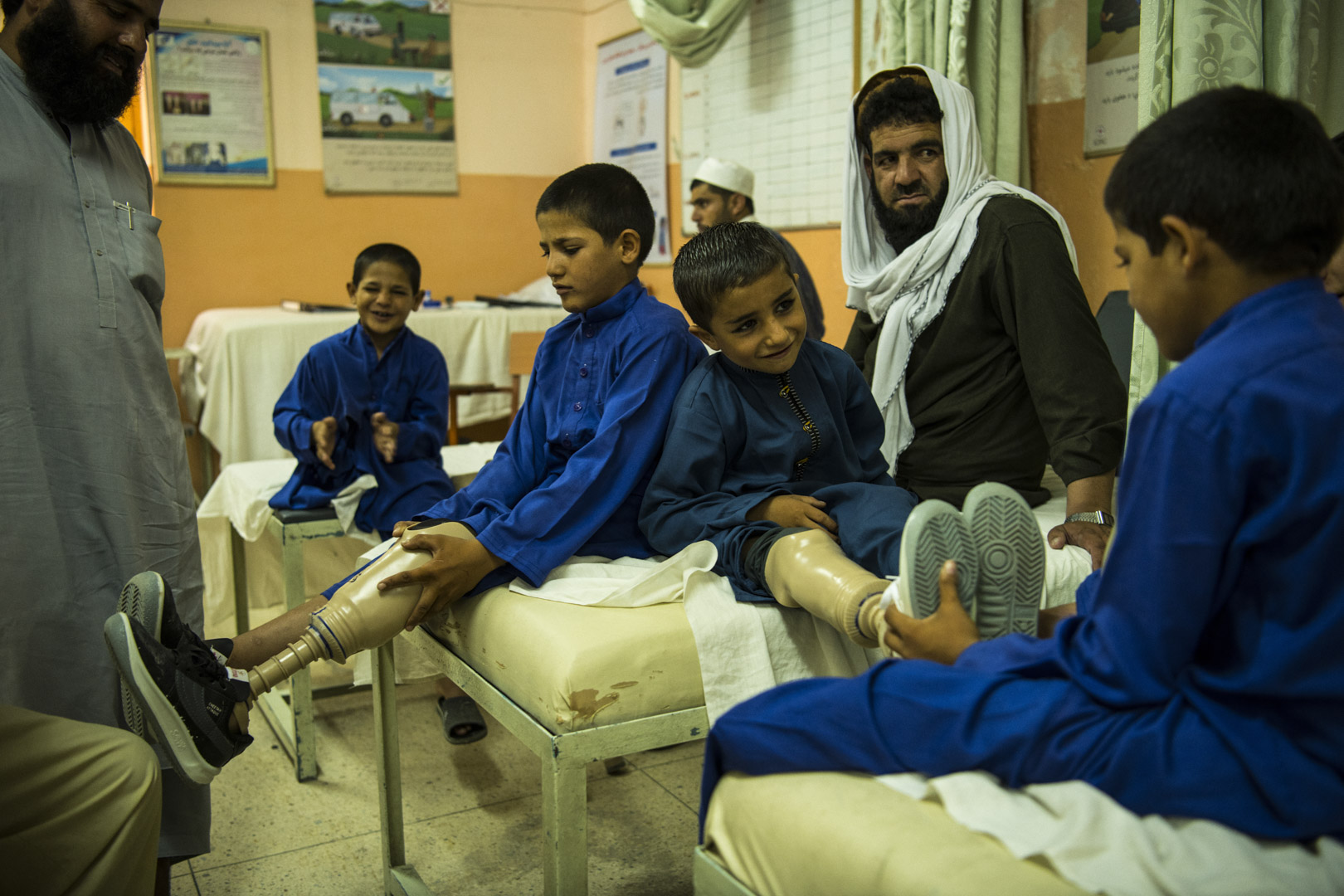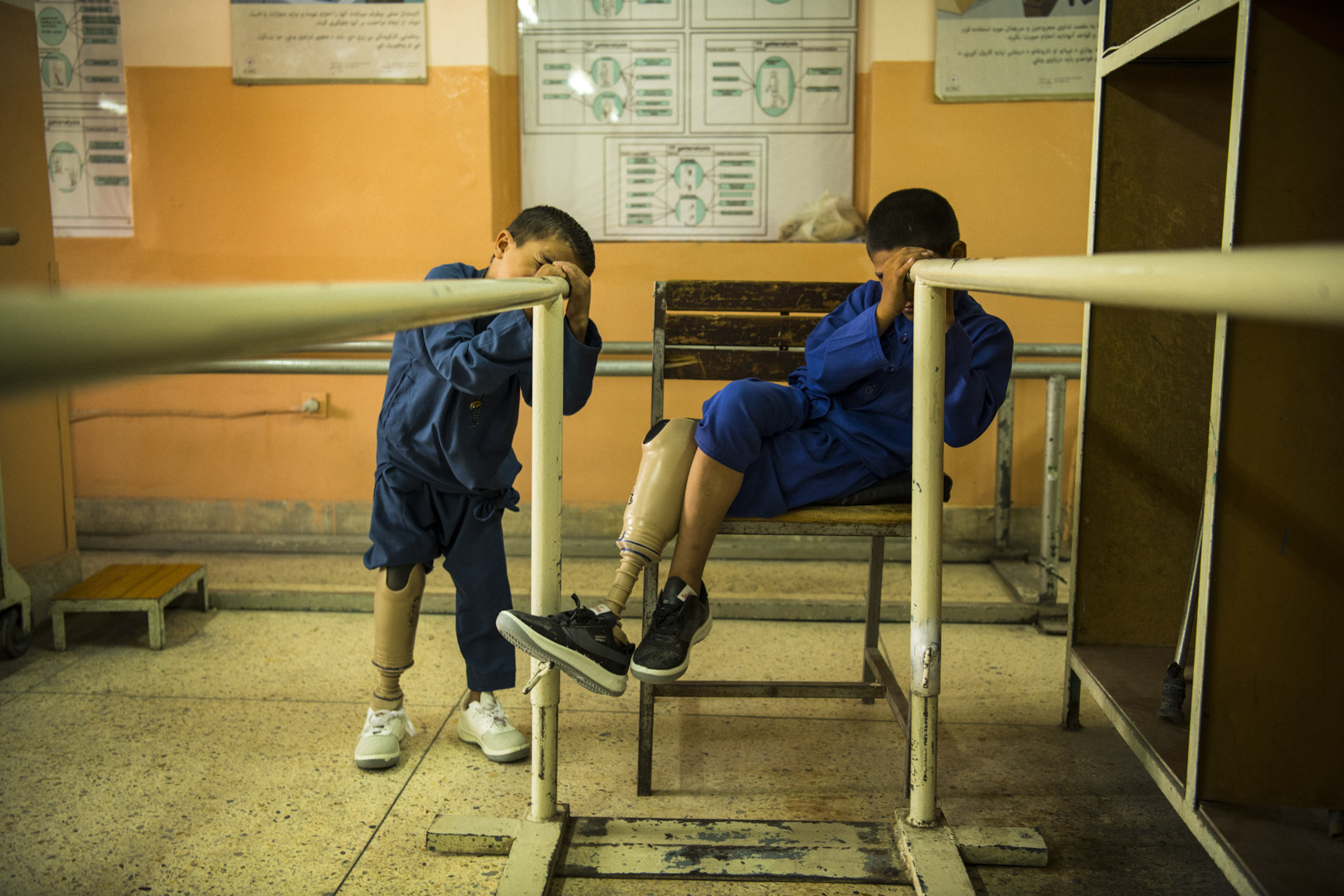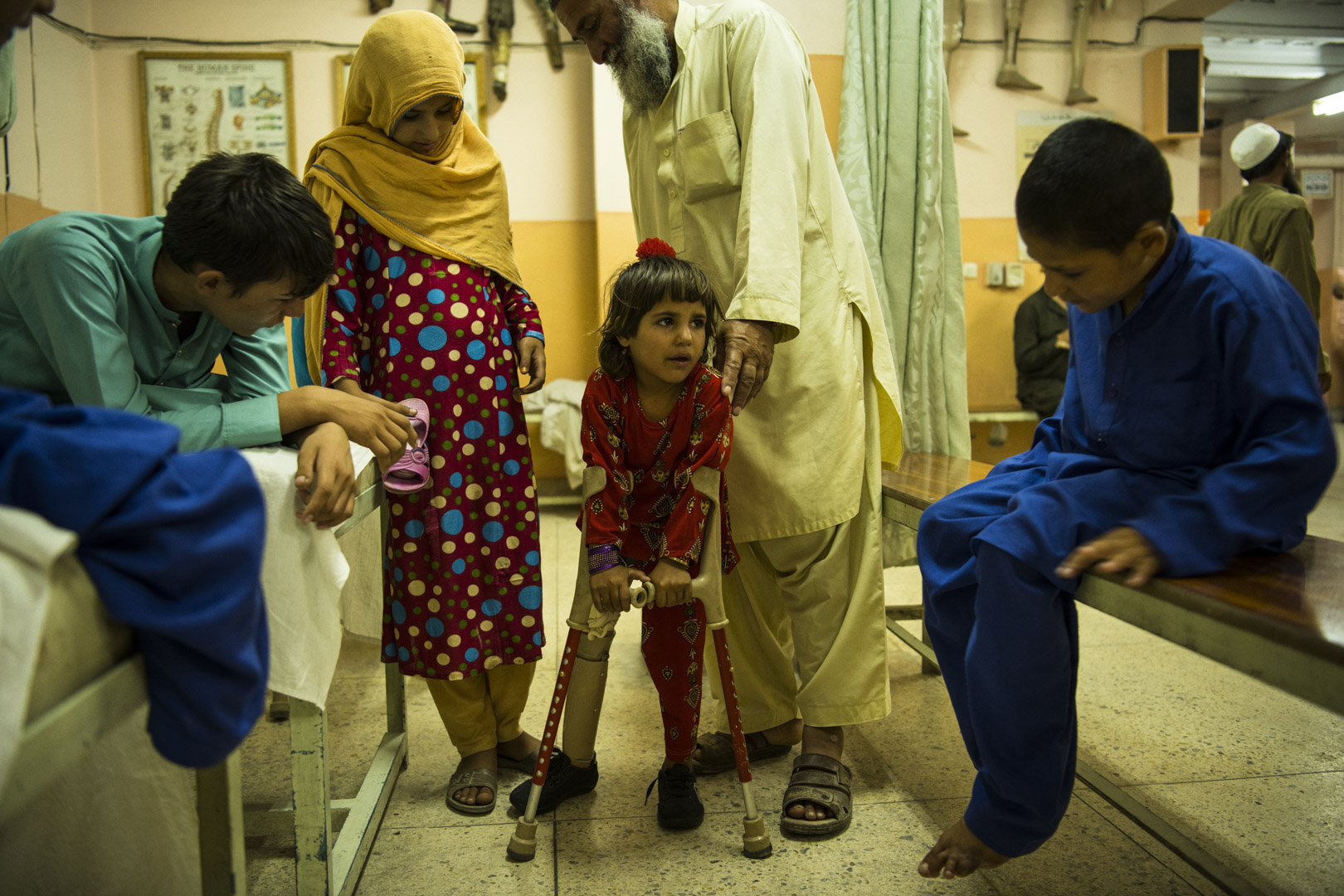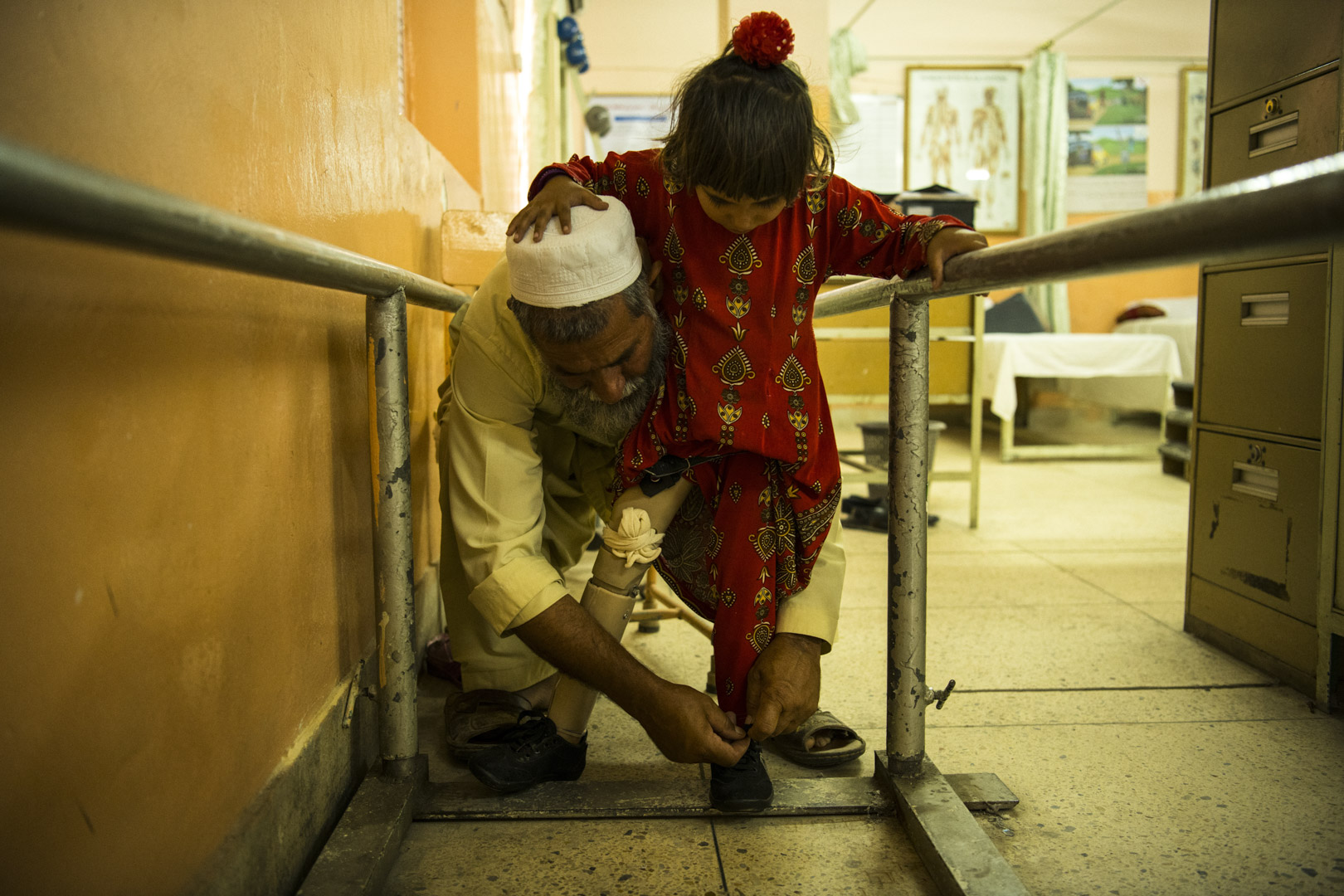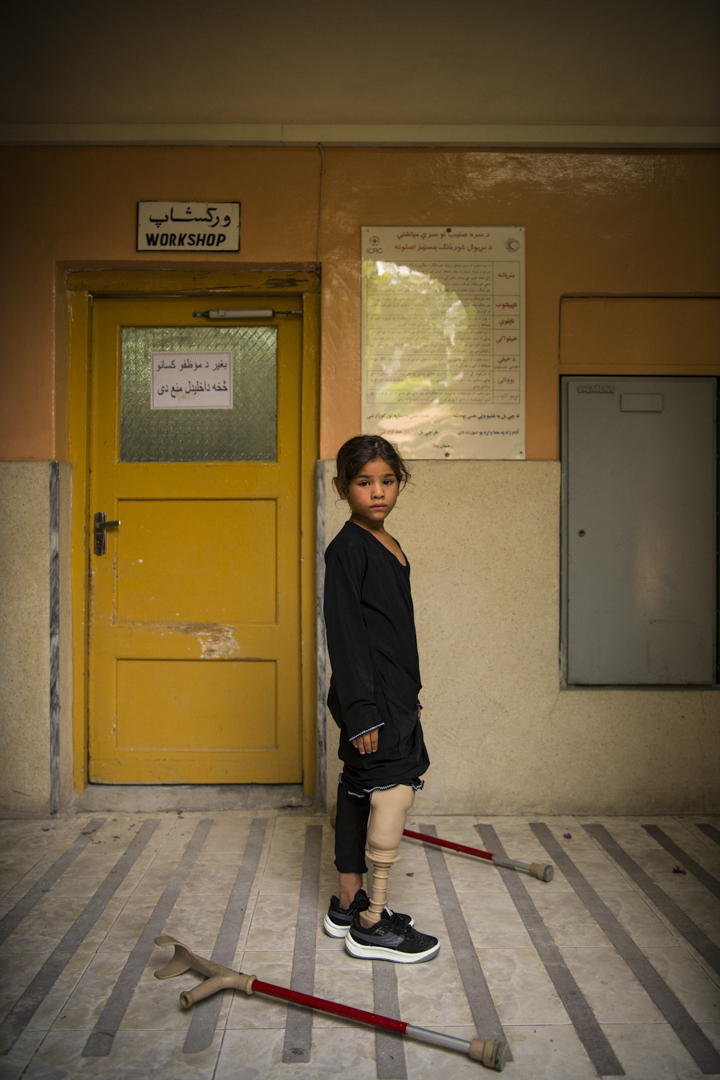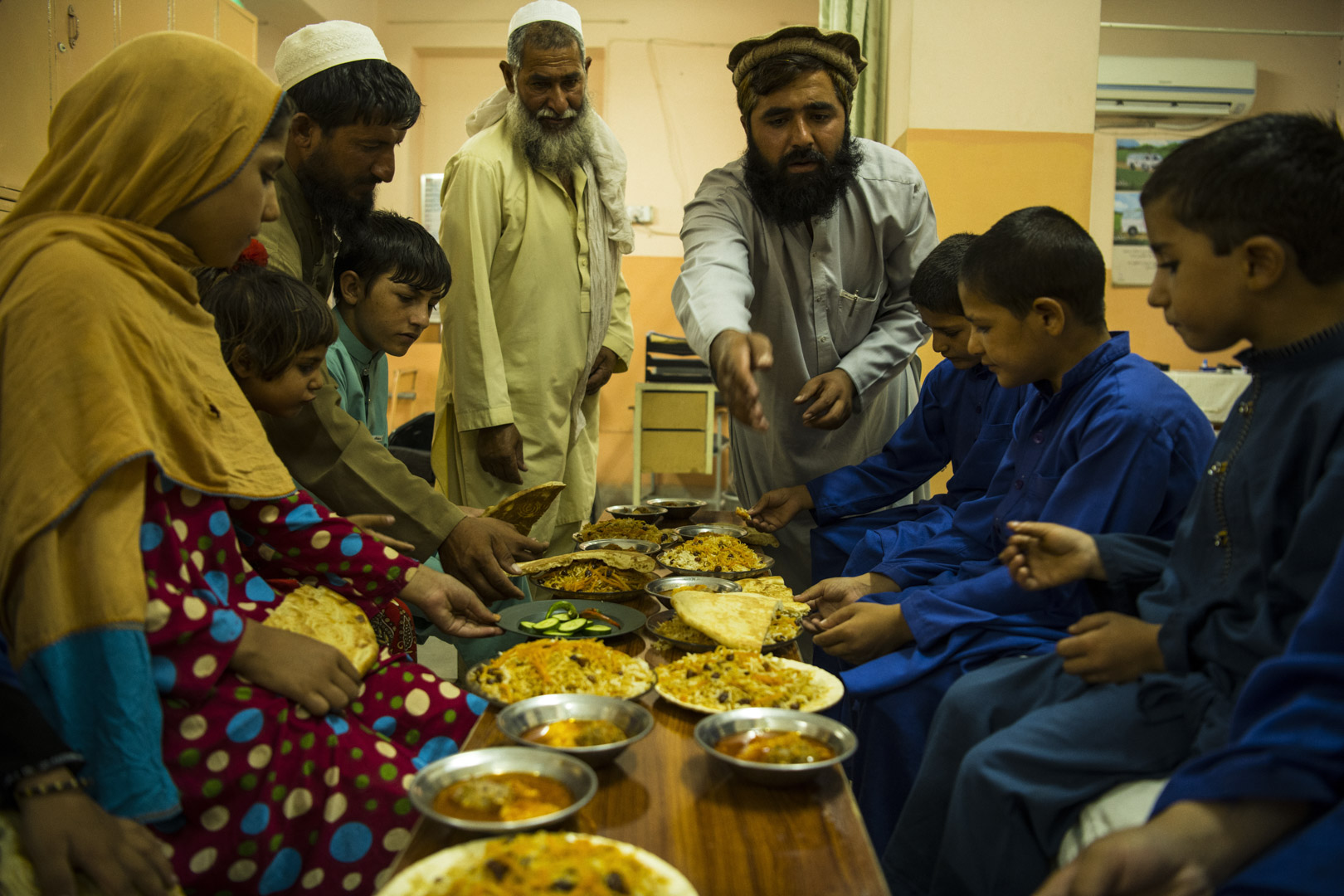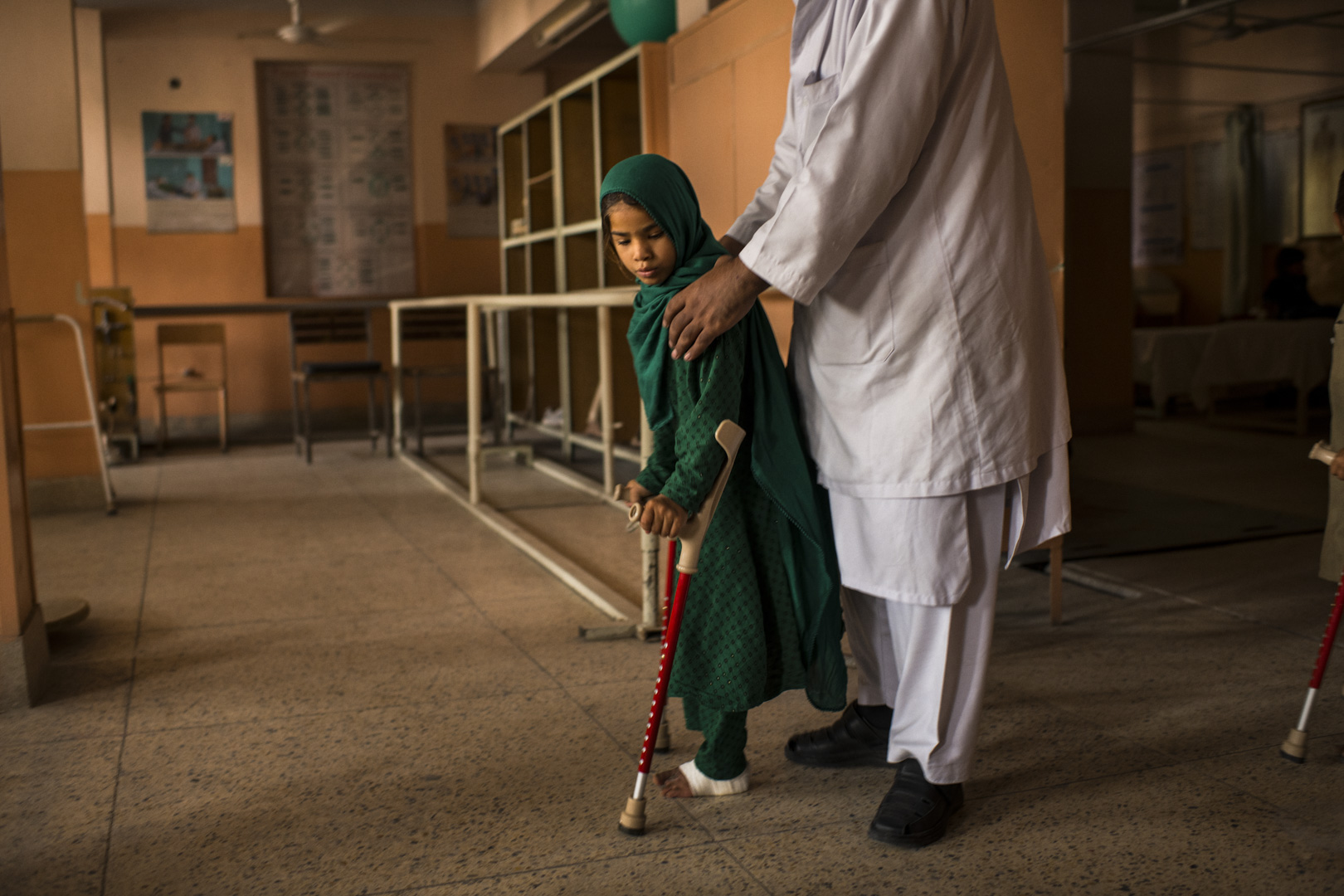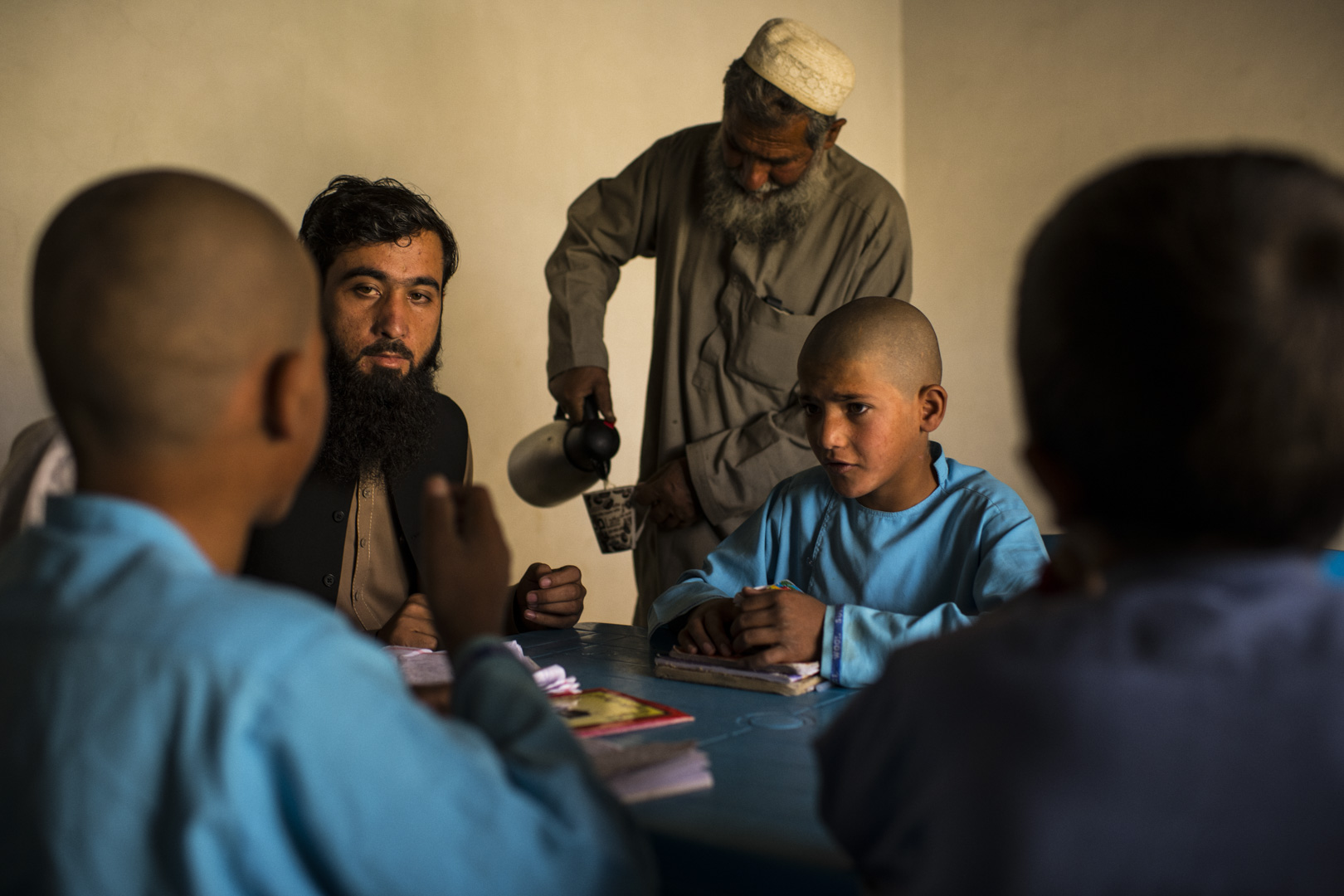When War Comes Home, 2018
On April 28, the Ibrahim Khil family did not sleep a wink all night because of the sound of bullets and rockets slamming and exploding in front of their house. Hamisha Gul, the patriarch, feared that the 24 members of his extended family would not survive the night. The children were not afraid: the sounds of war are common here in the small village of Saed Tuba in eastern Afghanistan. By 6 a.m., the fighting had stopped, and some of the children left through the dry wheat fields on their way to school. One of them fell on a dull green object the size of a police baton, picked it up and went home to show it to the others. Accounts of what happened next varied from child to child, but they all agree on one thing: after a dozen children had gathered, the RPG (rocket-propelled grenade) fell to the ground and exploded. Hamisha Gul, 60 years old, then almost a kilometer away, heard the explosion despite the noise of his tractor. When he turned around, a cloud of dust was escaping from his house.
After 17 years of war between the Taliban and Afghan forces, supported by foreign troops, violence continues to occur on a regular basis. The Taliban killed dozens of people in targeting the October 20 and 21 parliamentary elections. Three days earlier, nearly all of Kandahar’s leadership was decimated in an attack that nearly took the life of General Austin S. Miller, commander of the NATO Resolute Support mission.
Civilians have paid a heavy price in this long-running conflict. Many are killed by air strikes or improvised explosive devices detonated by suicide bombers. Nonetheless, of the 8050 civilians killed or injured this year, the UN counts 337 who were killed by unexploded ordnance left on the battlefield; 90% of them were children.
By 2014, the war was back. Their village in Surkh Rod province became a No Man’s Land, wedged between a government-controlled road and the Taliban’s Black Mountain, so named because snow never falls there. That year, international forces handed over responsibility for the country’s security to the Afghan government, and the Taliban began attacking Afghan soldiers stationed on the road. Local elders pleaded with both sides to avoid clashes near their homes, but this did not help, despite the fighters’ understanding.
